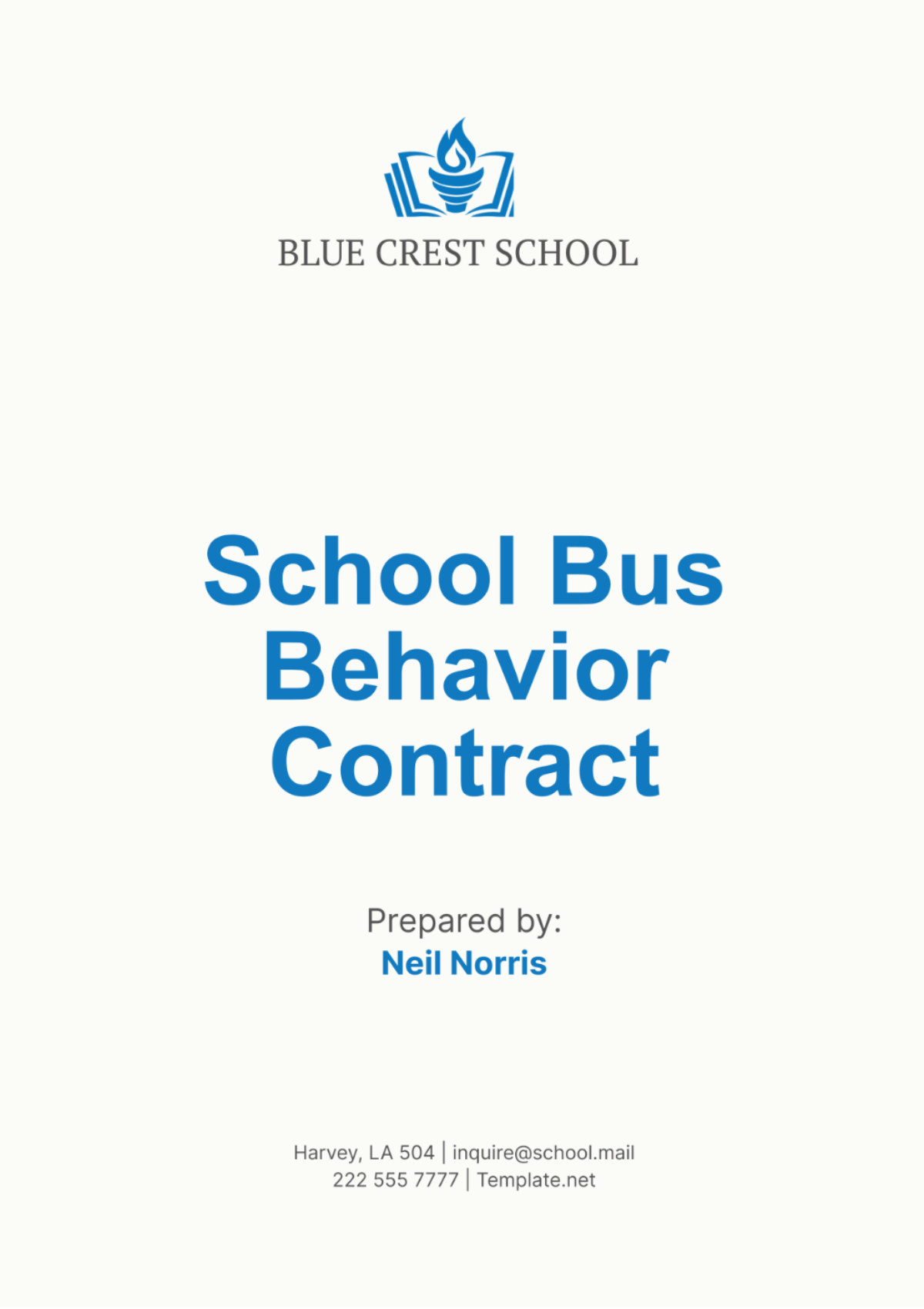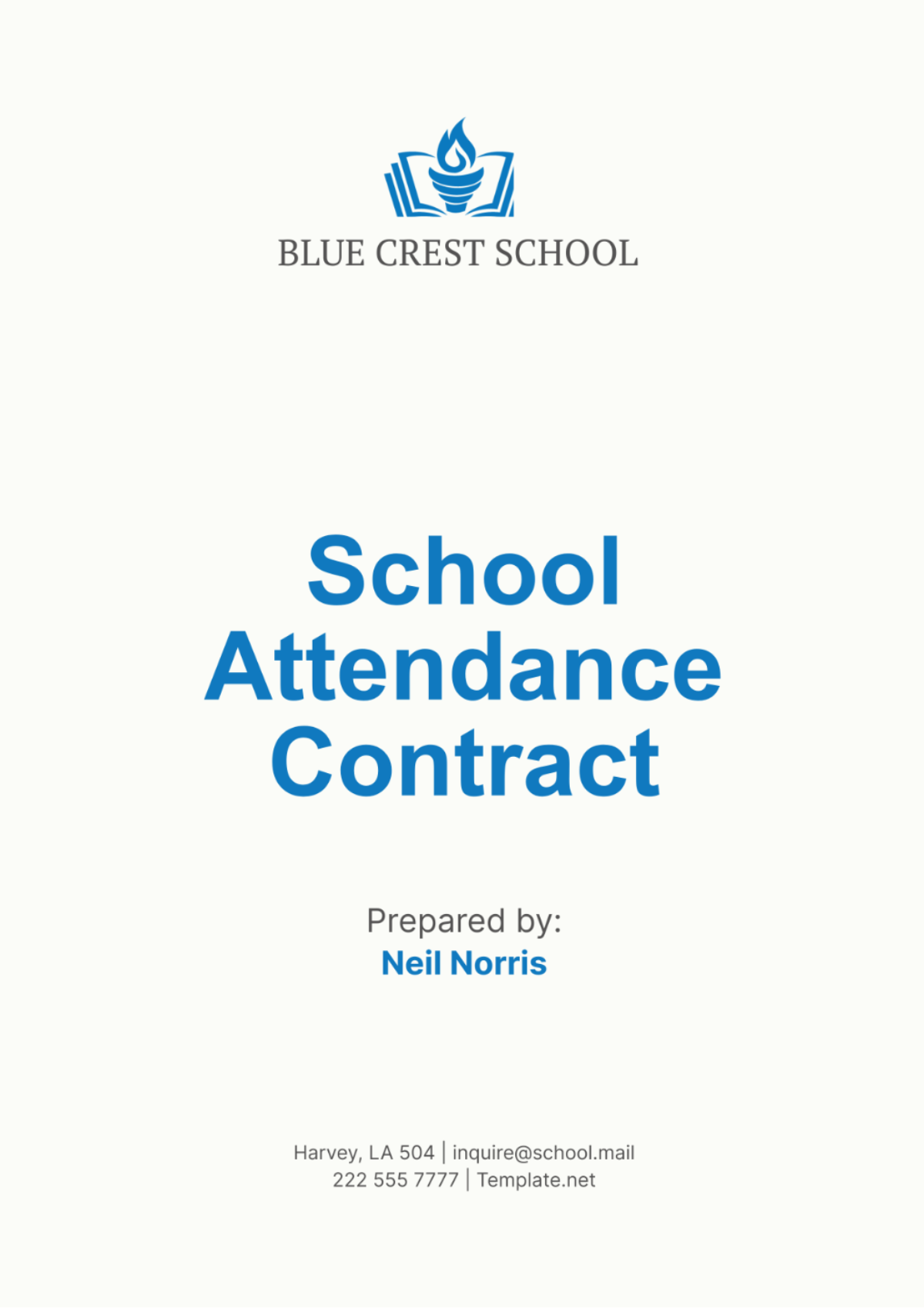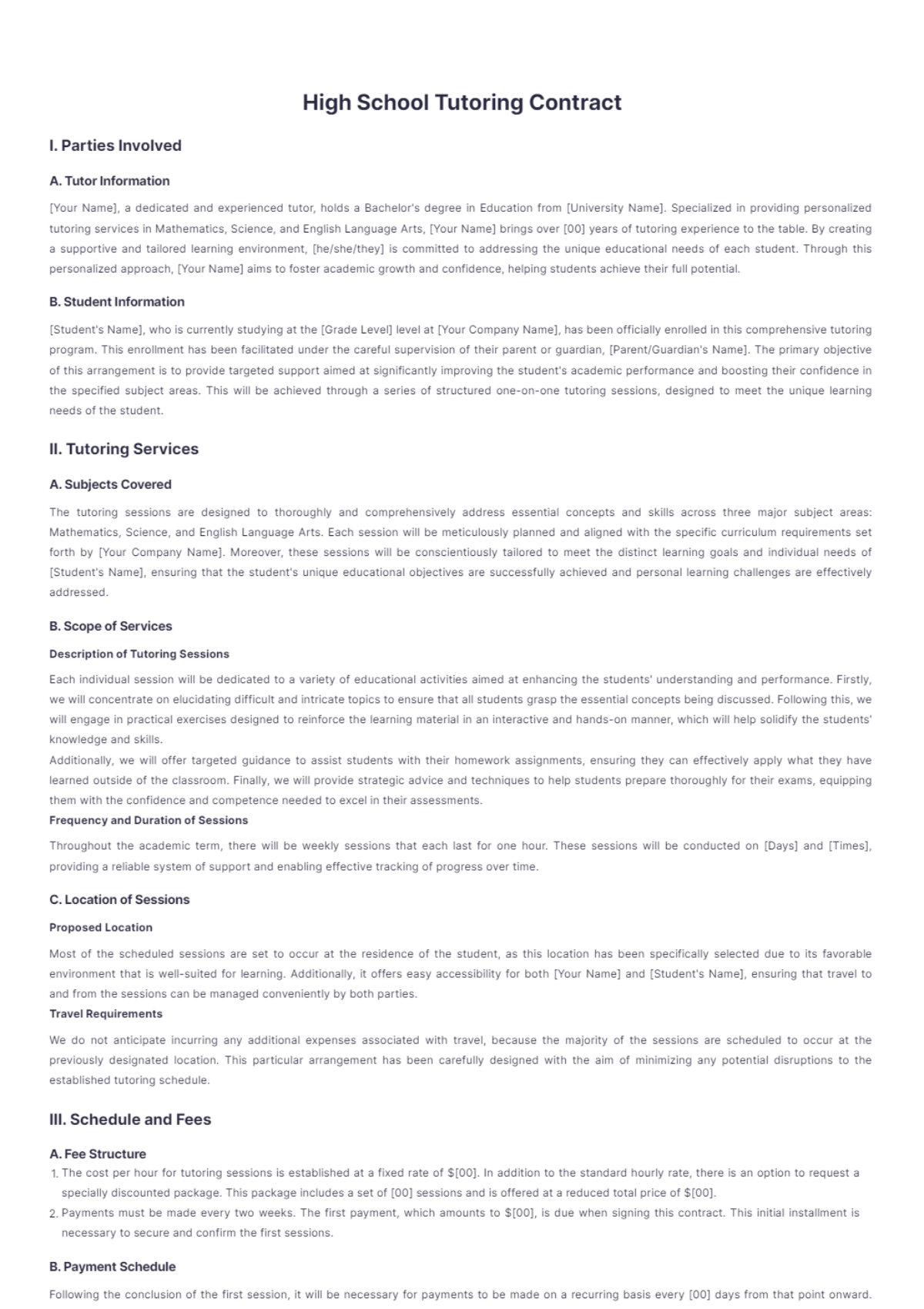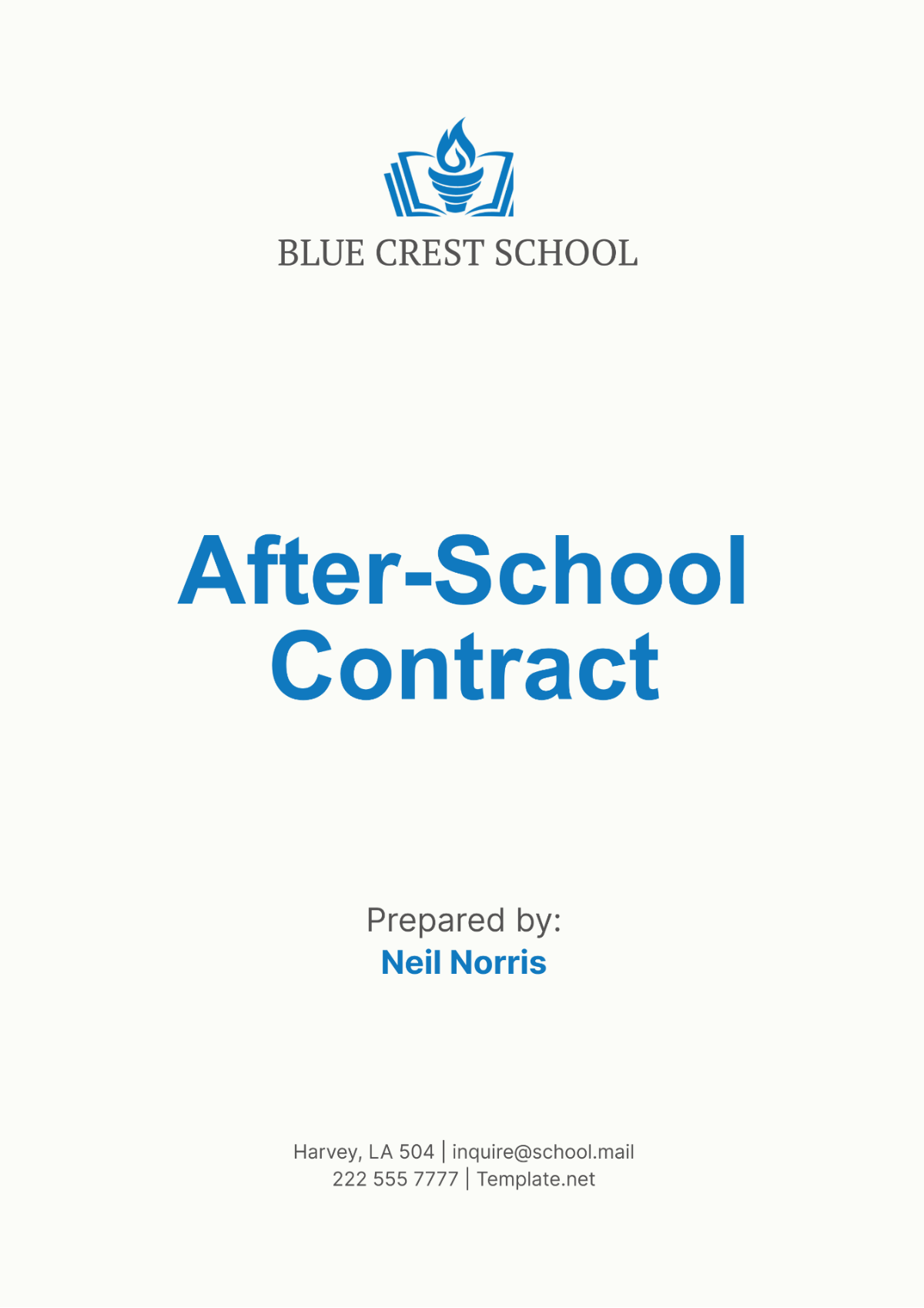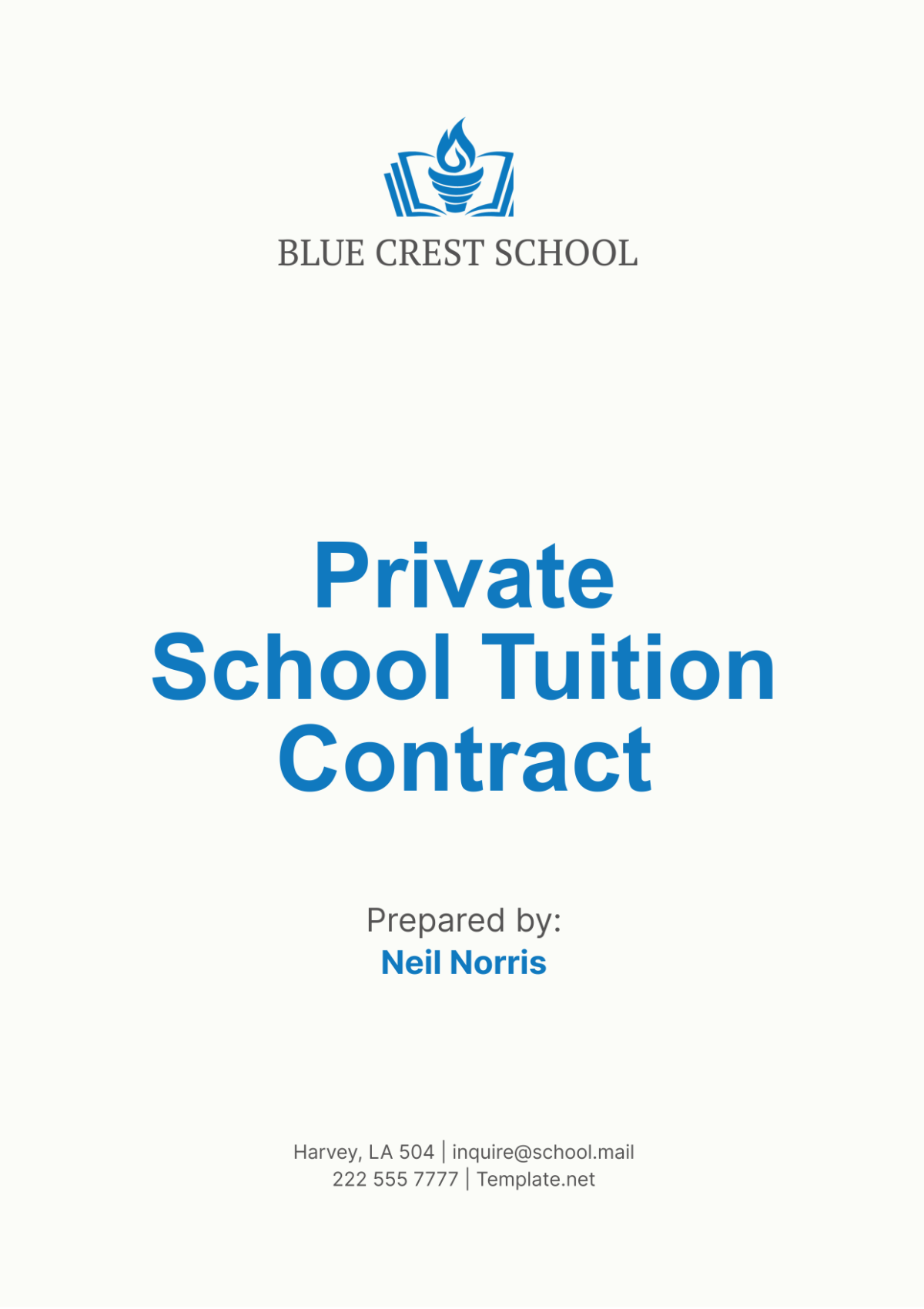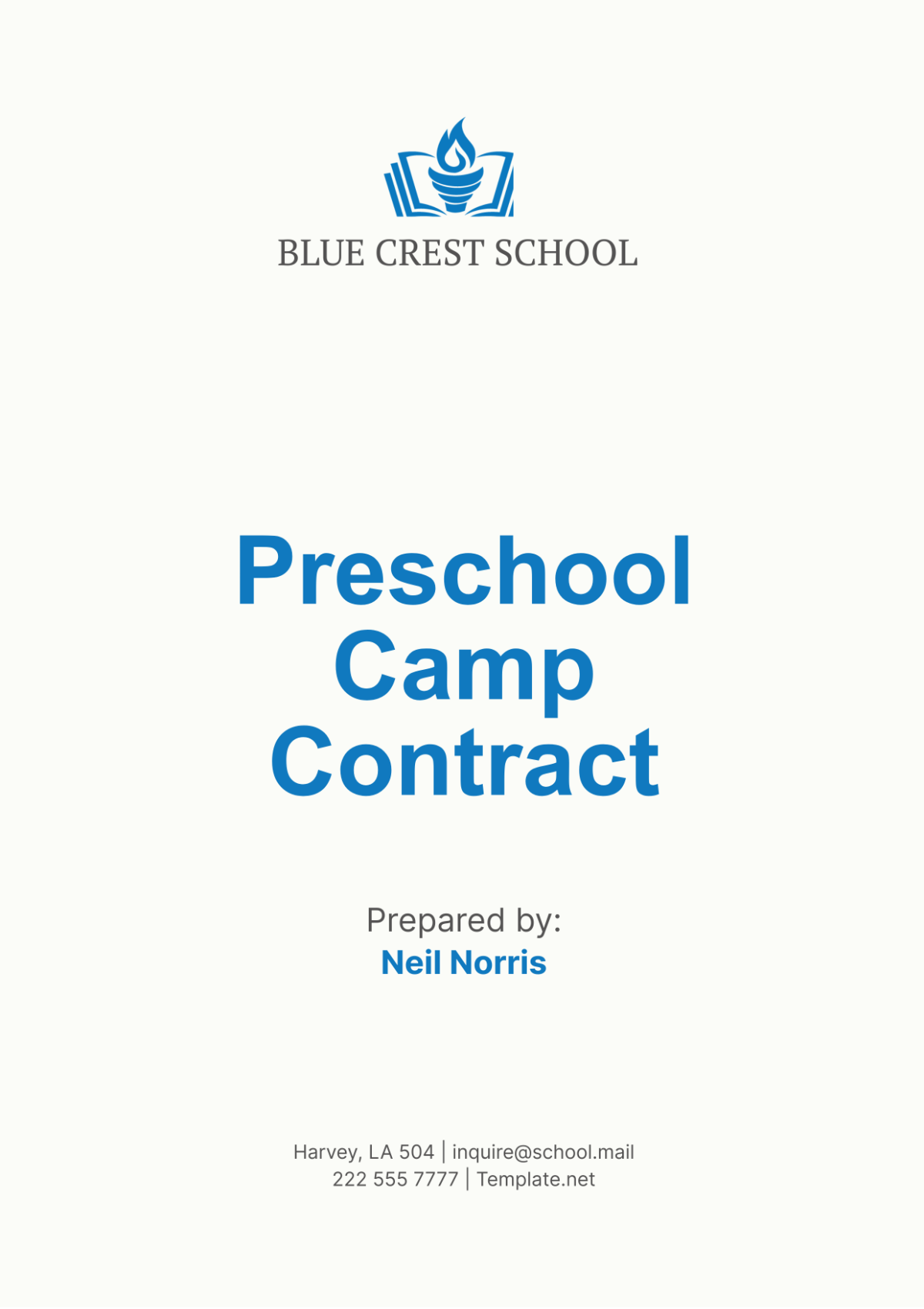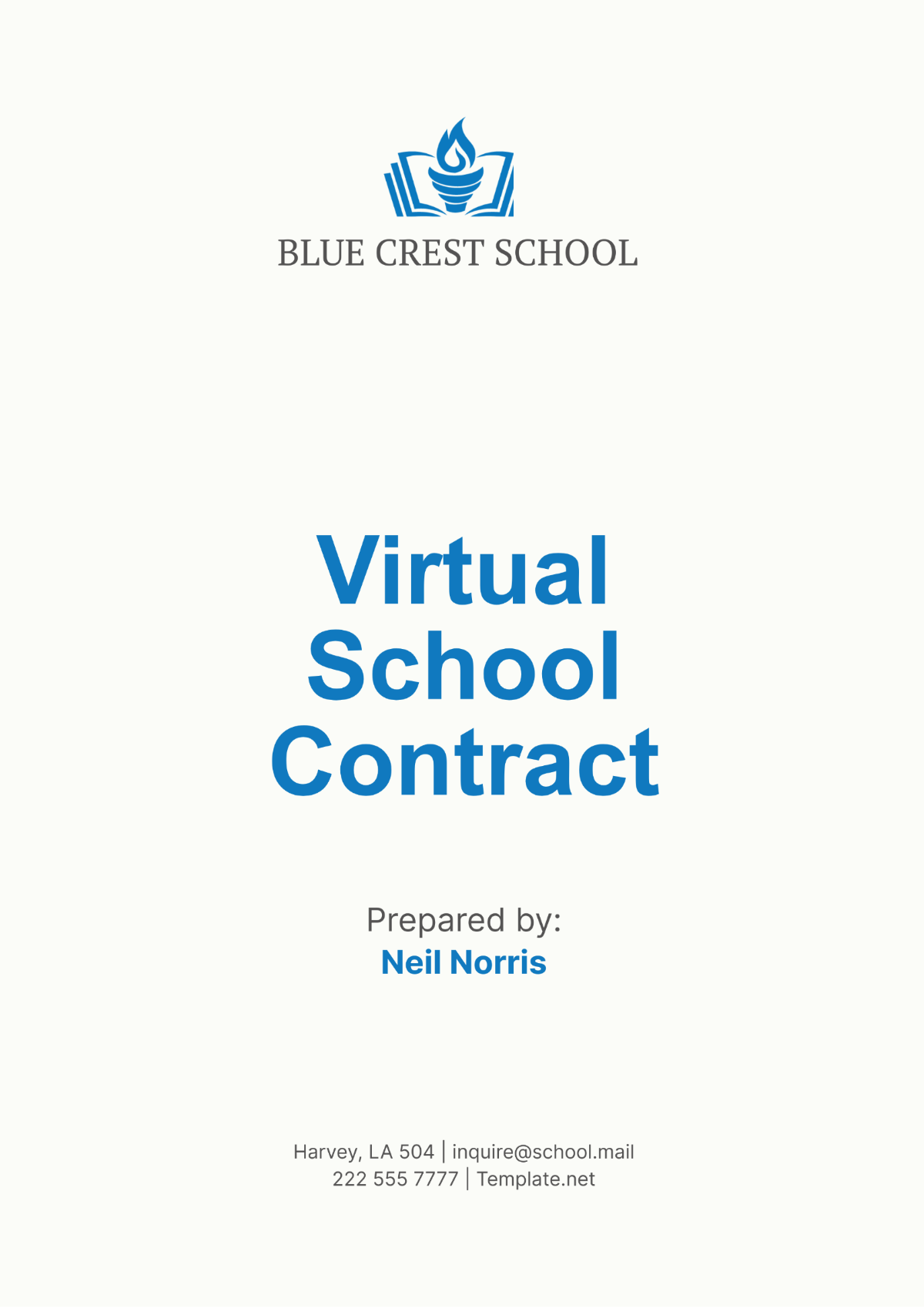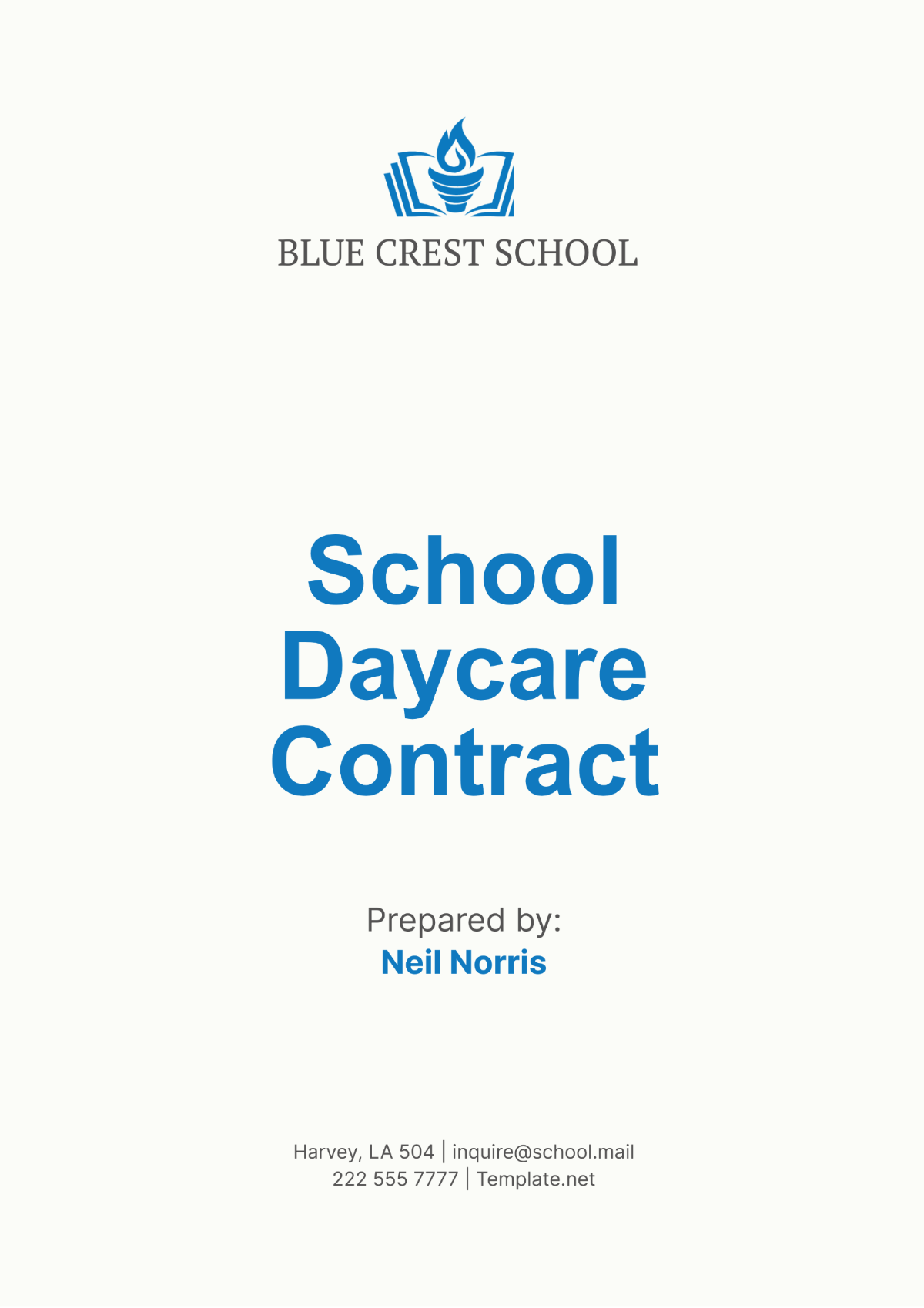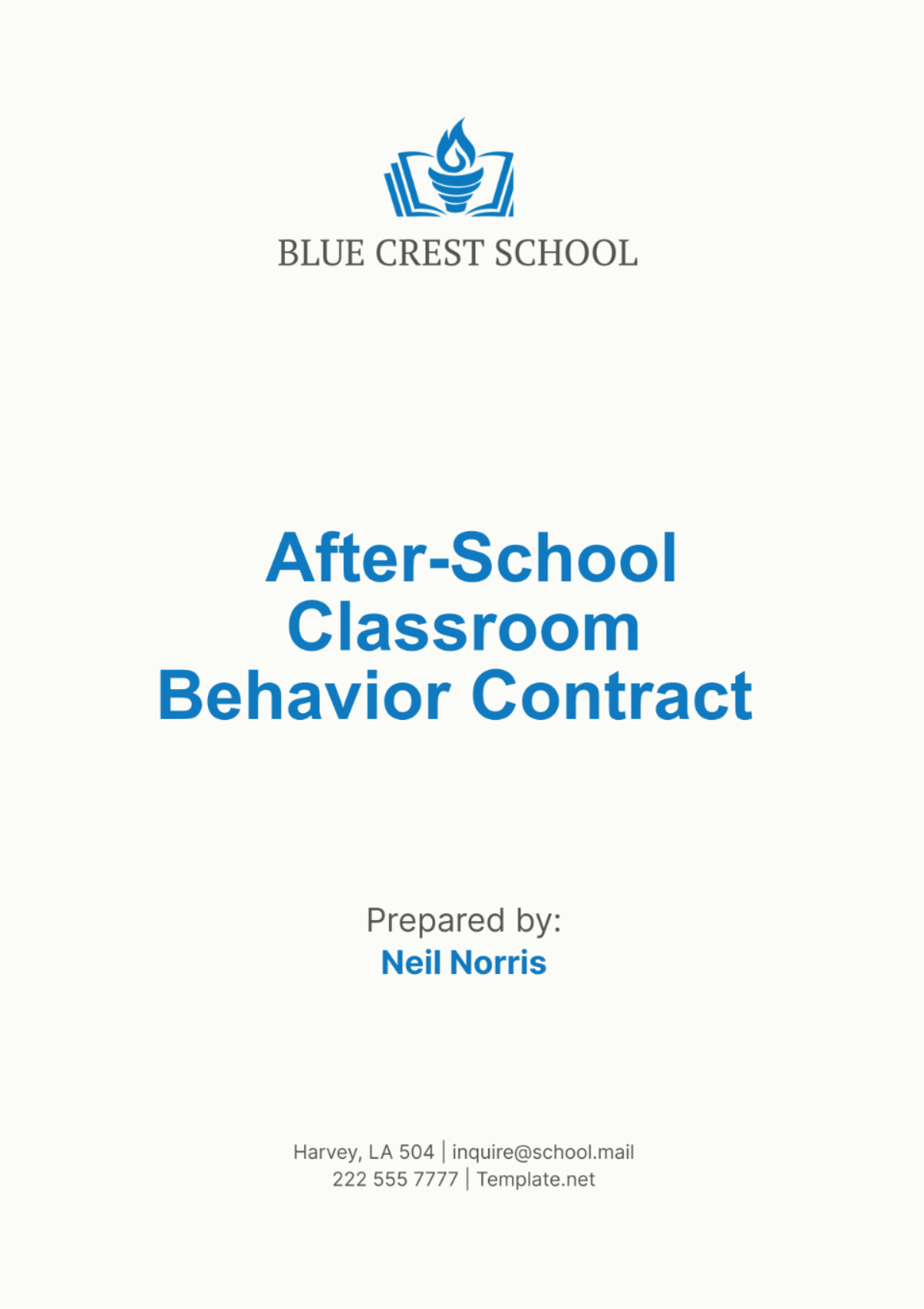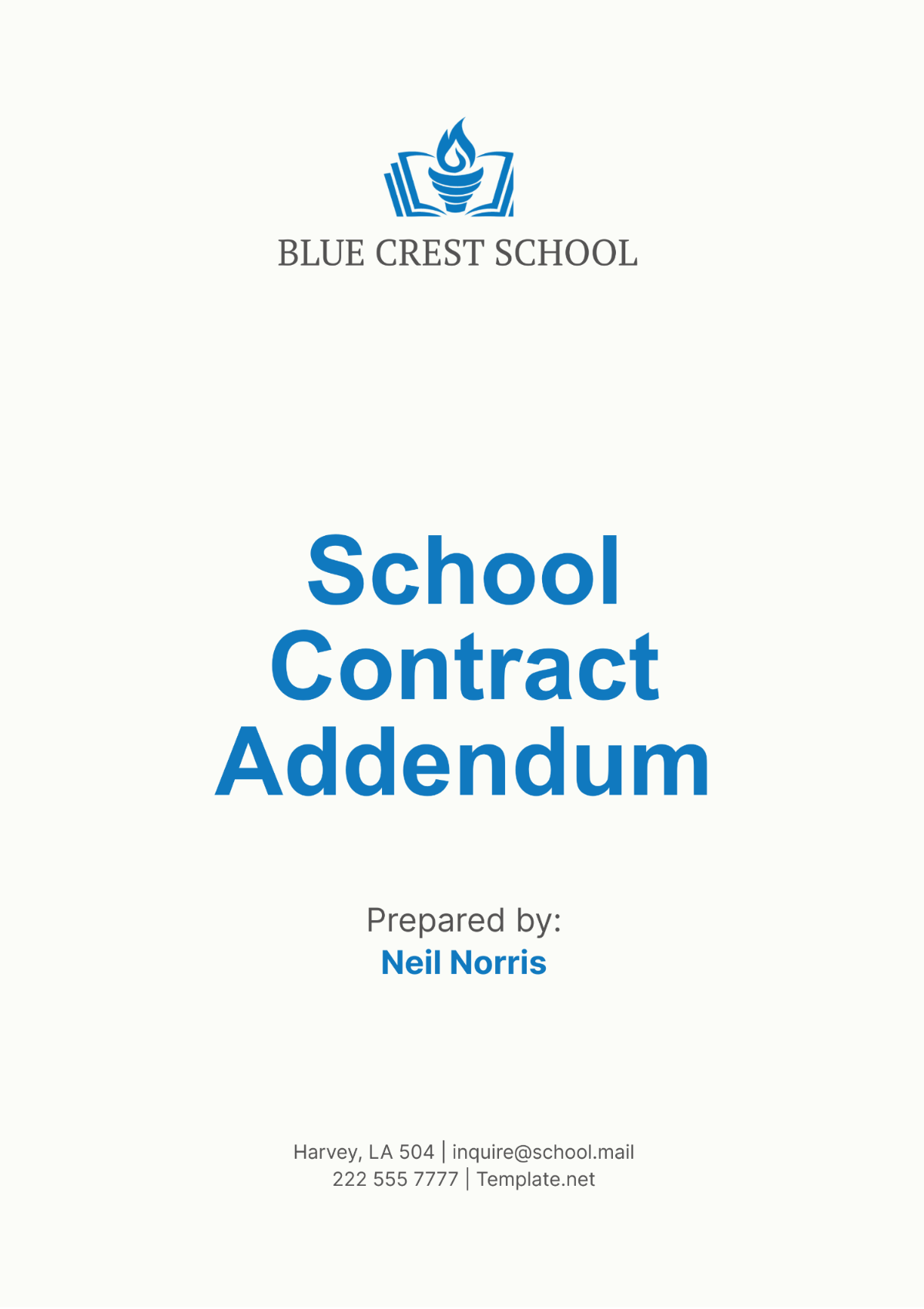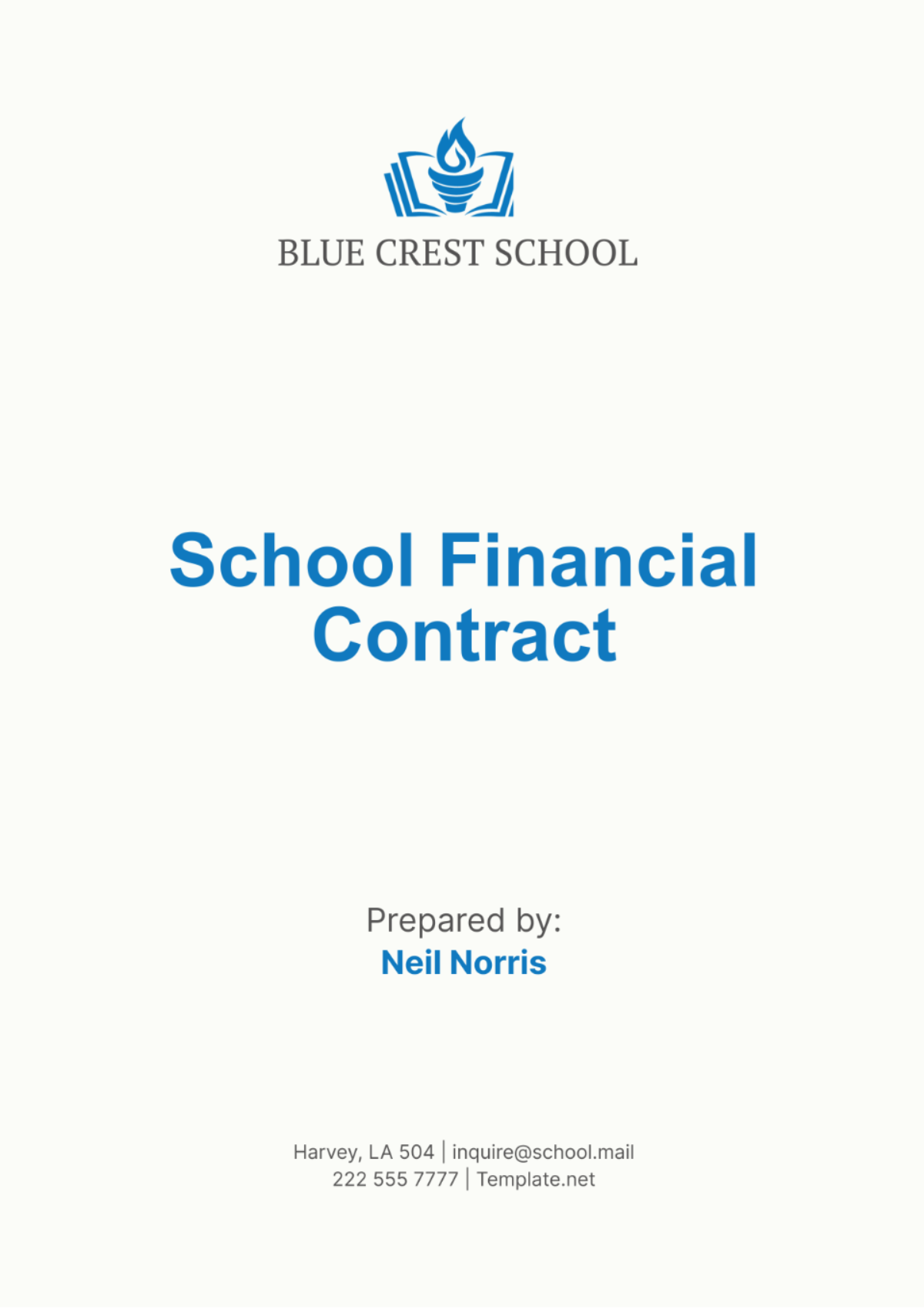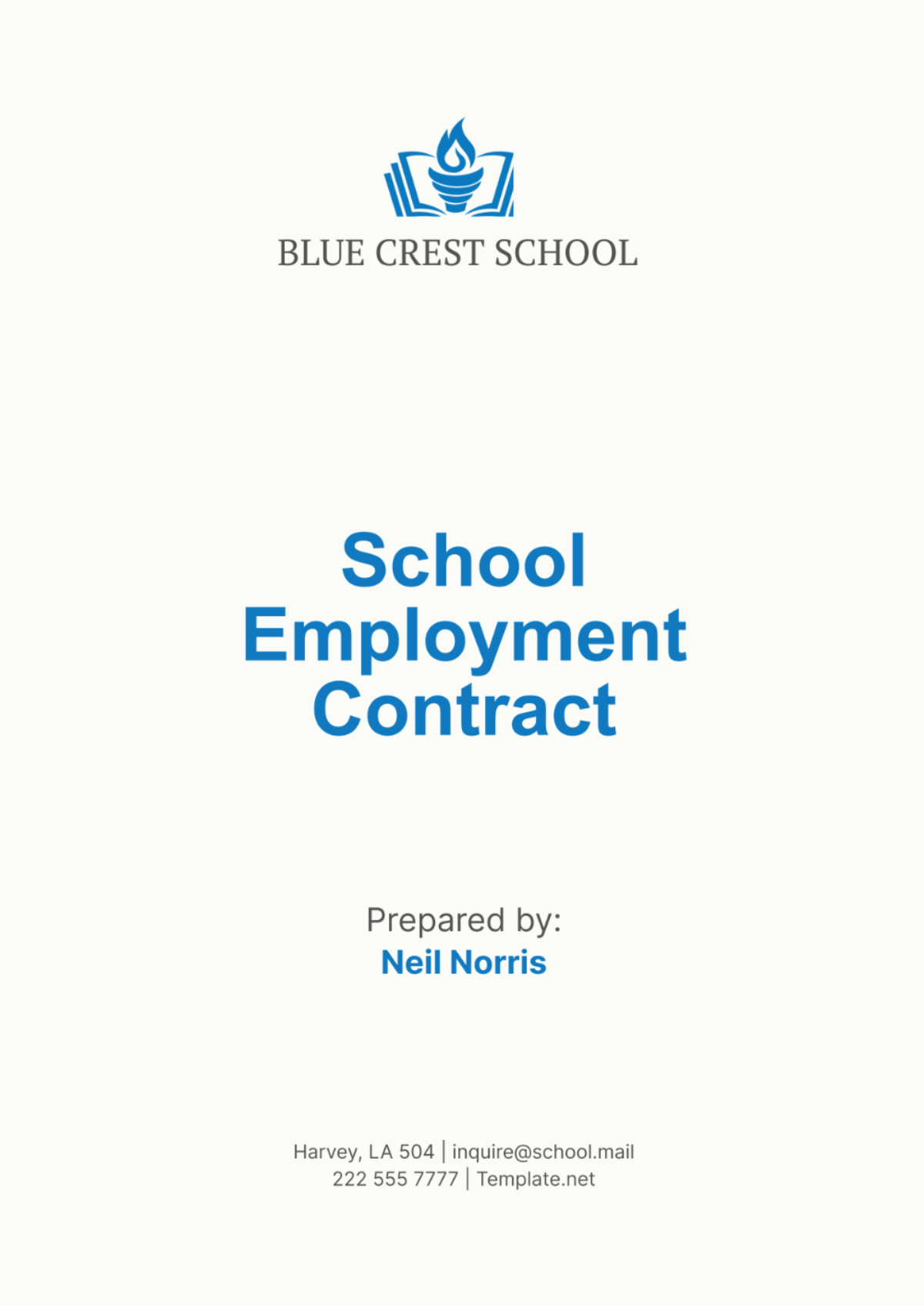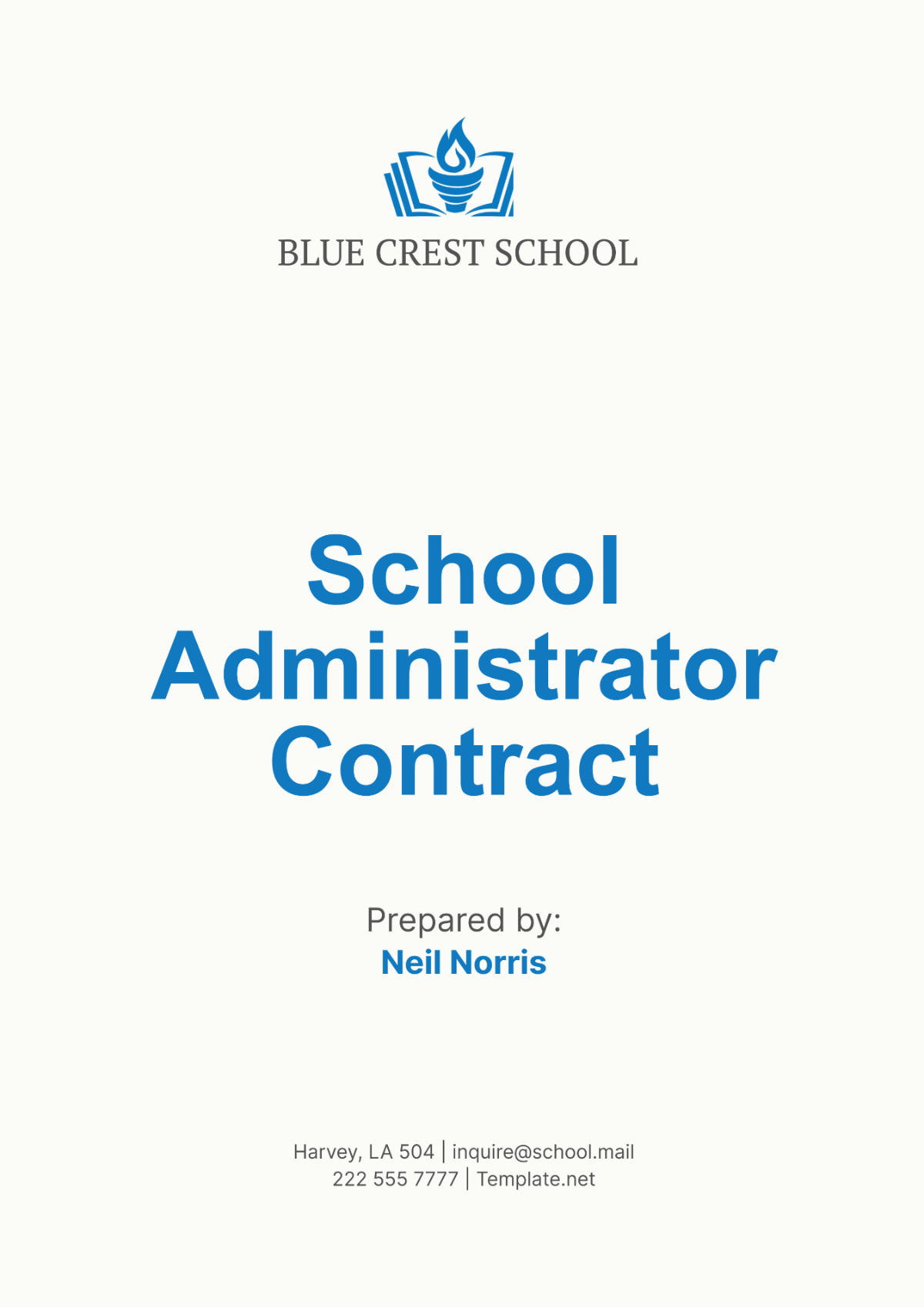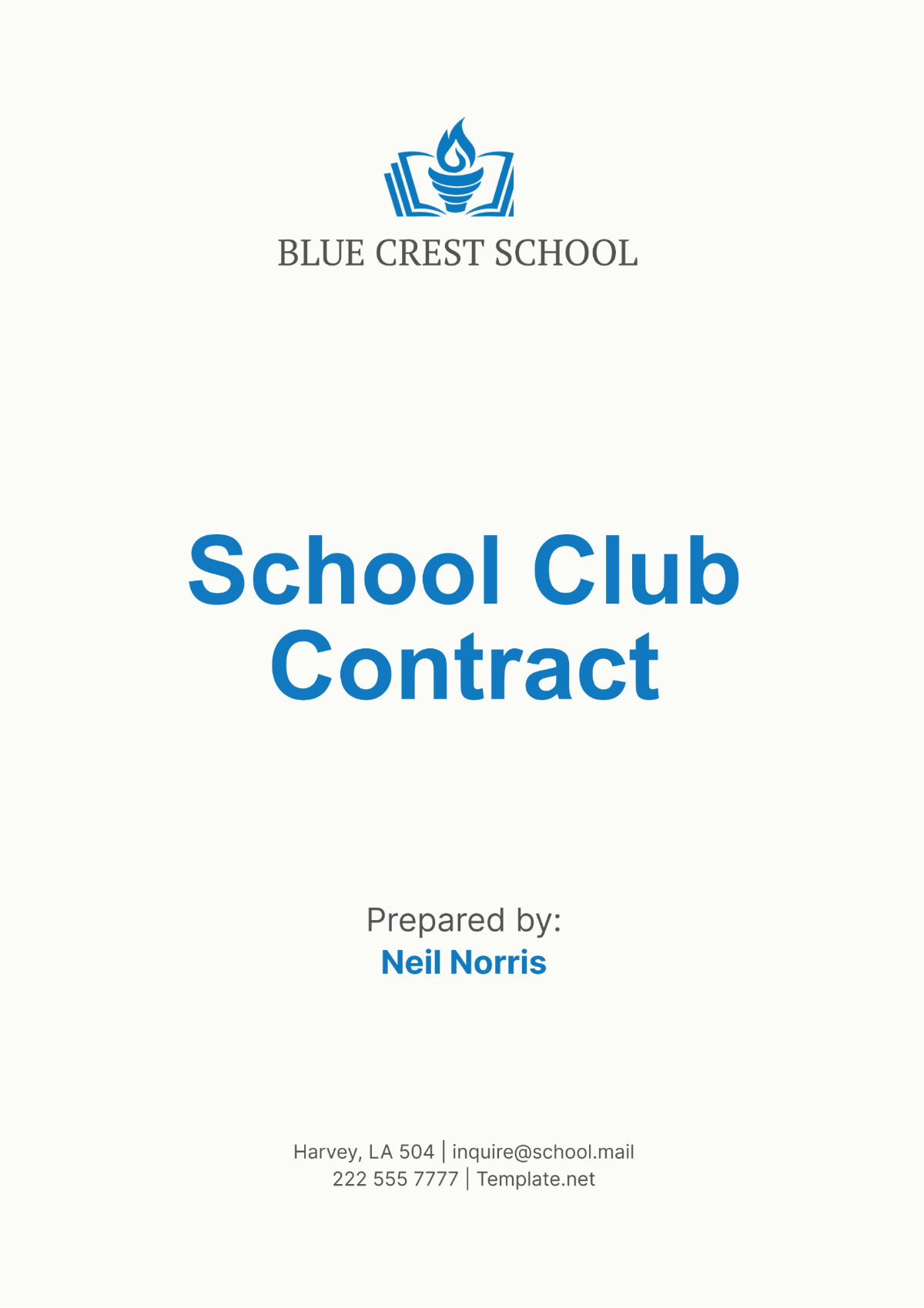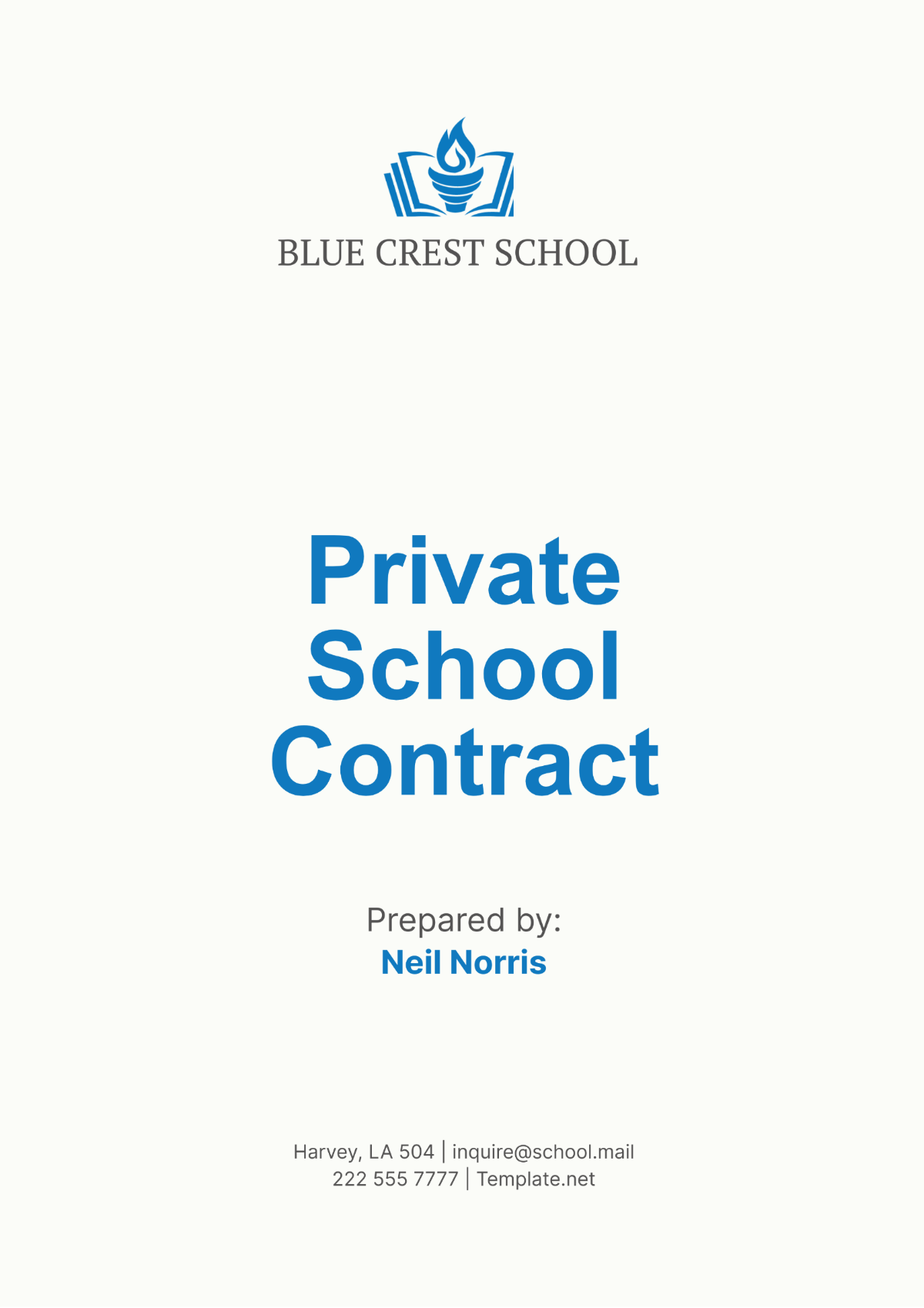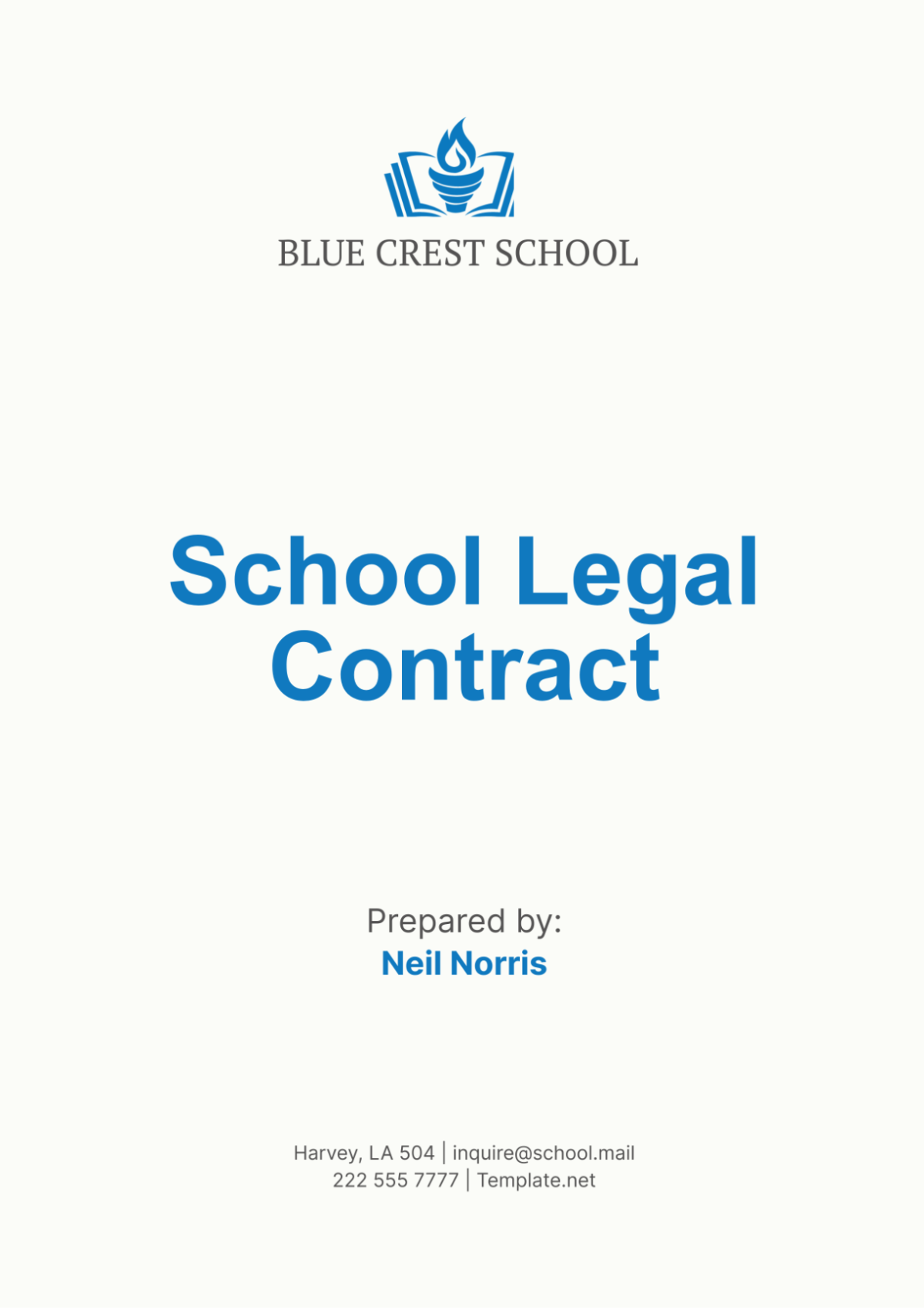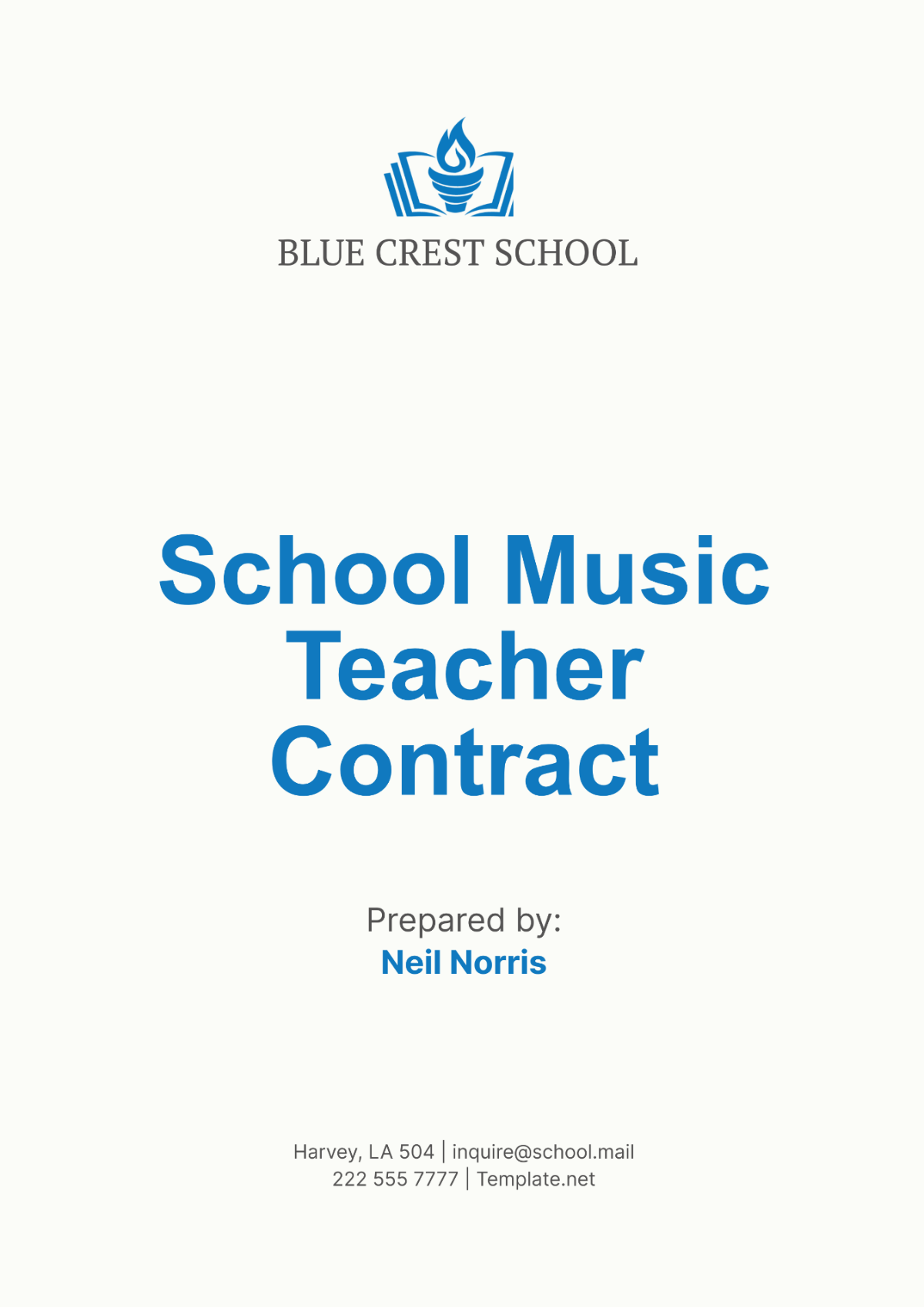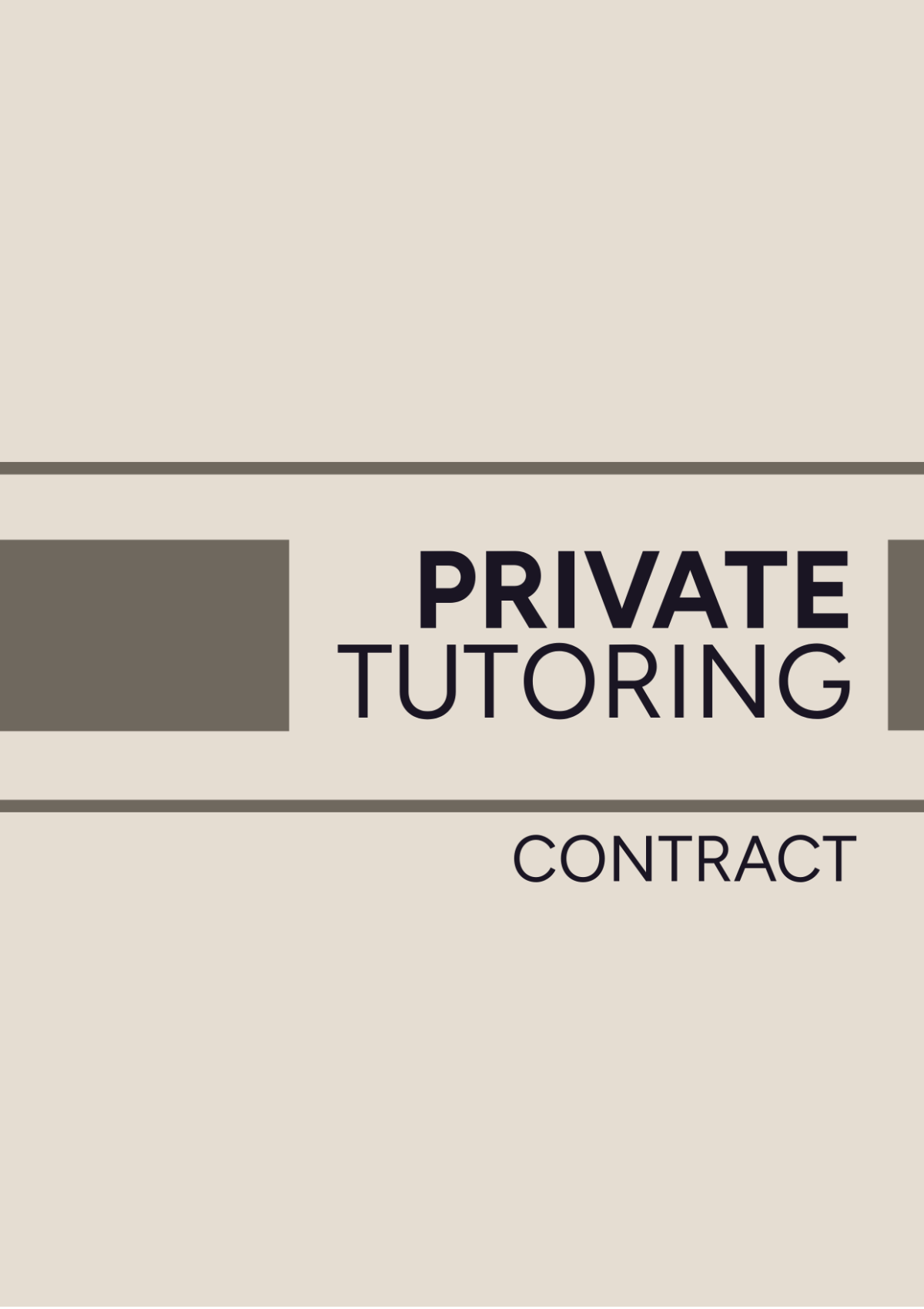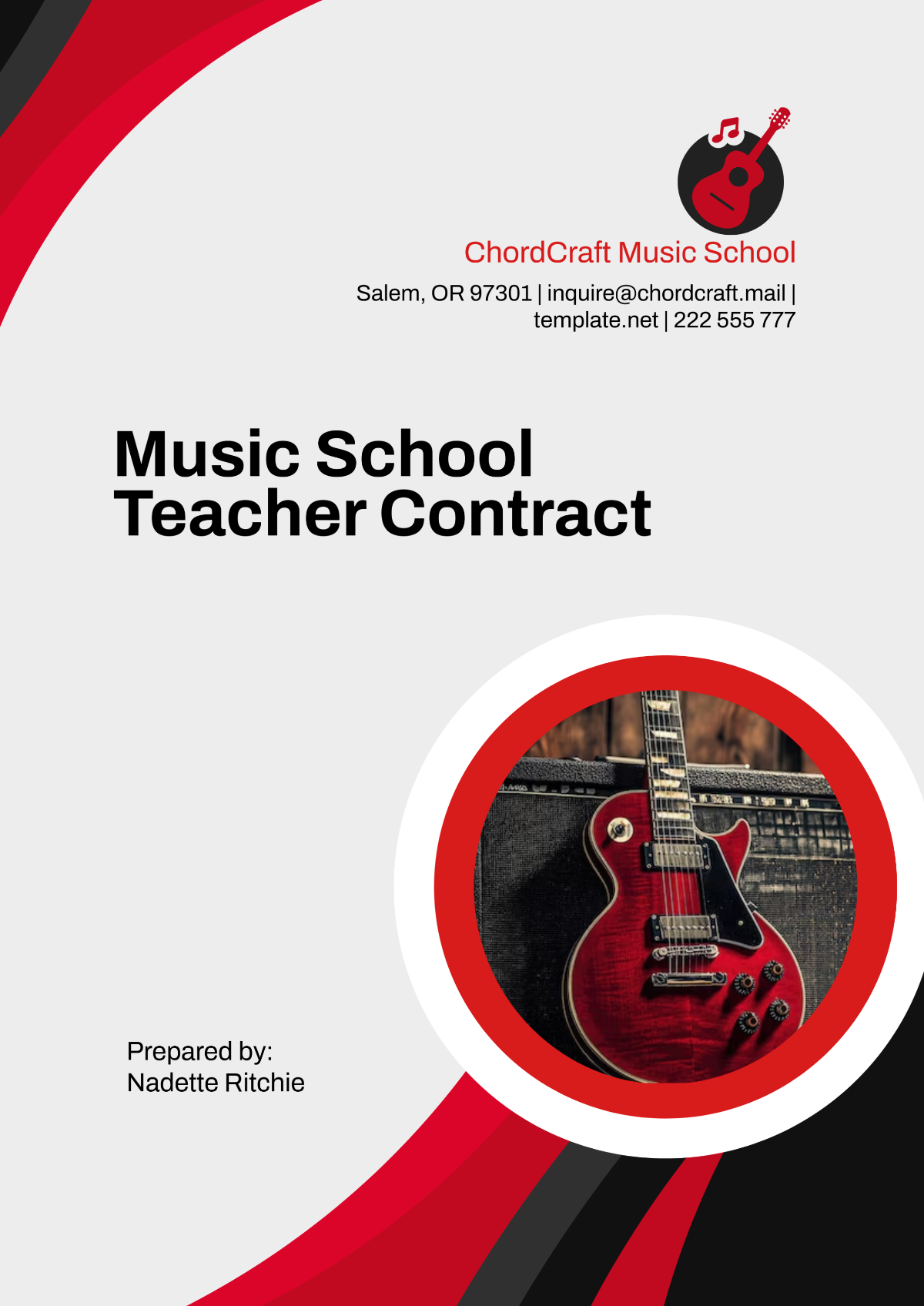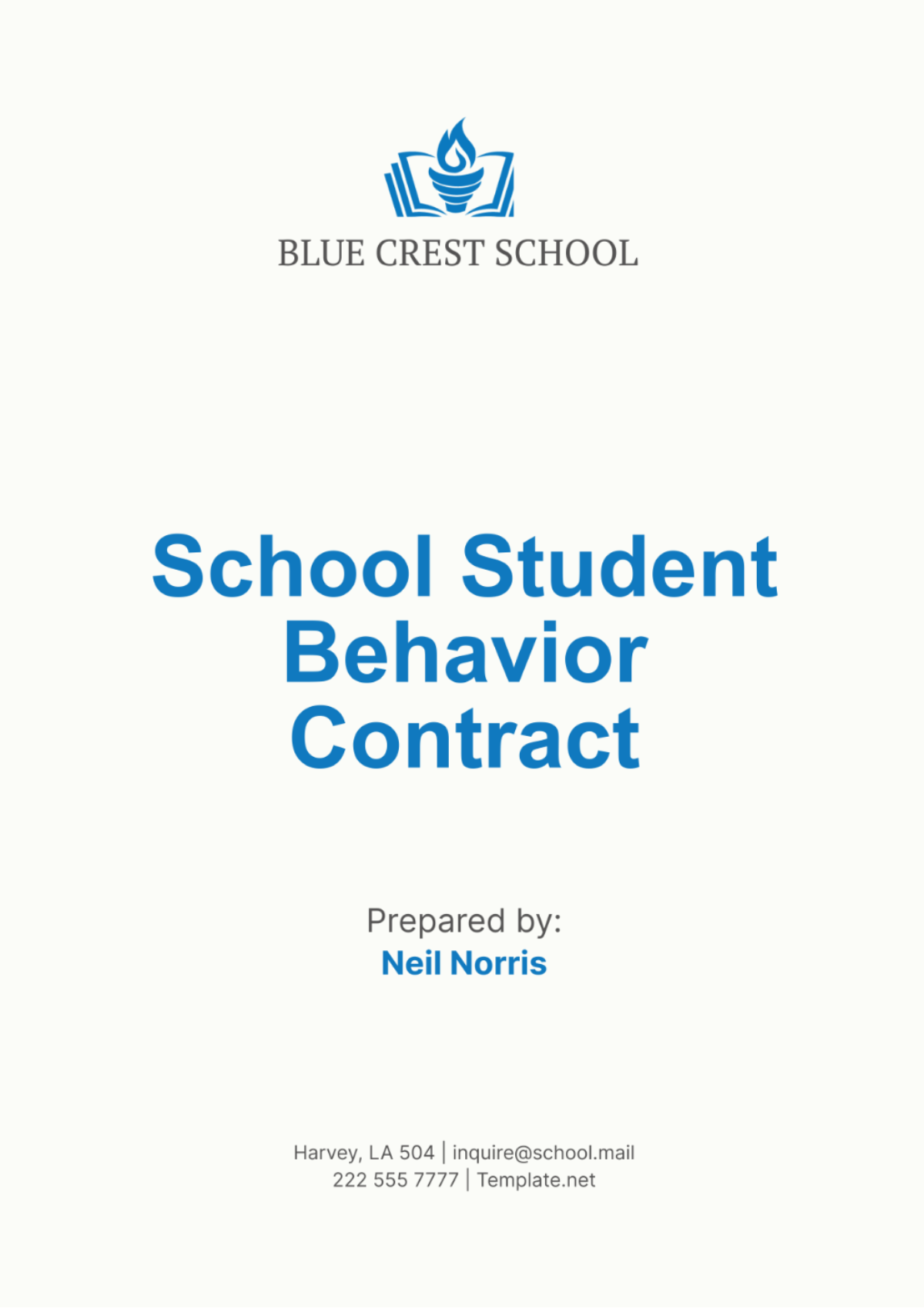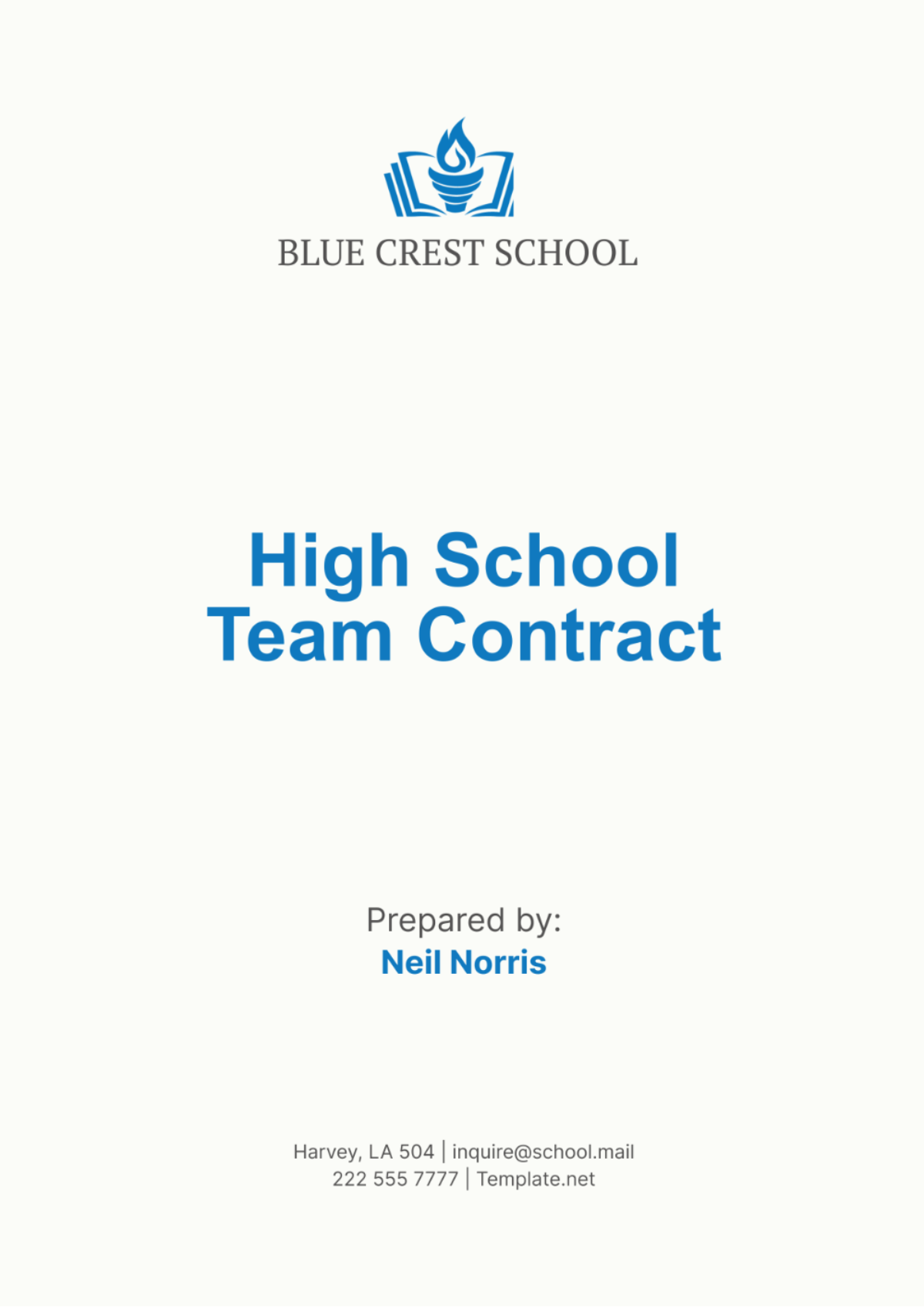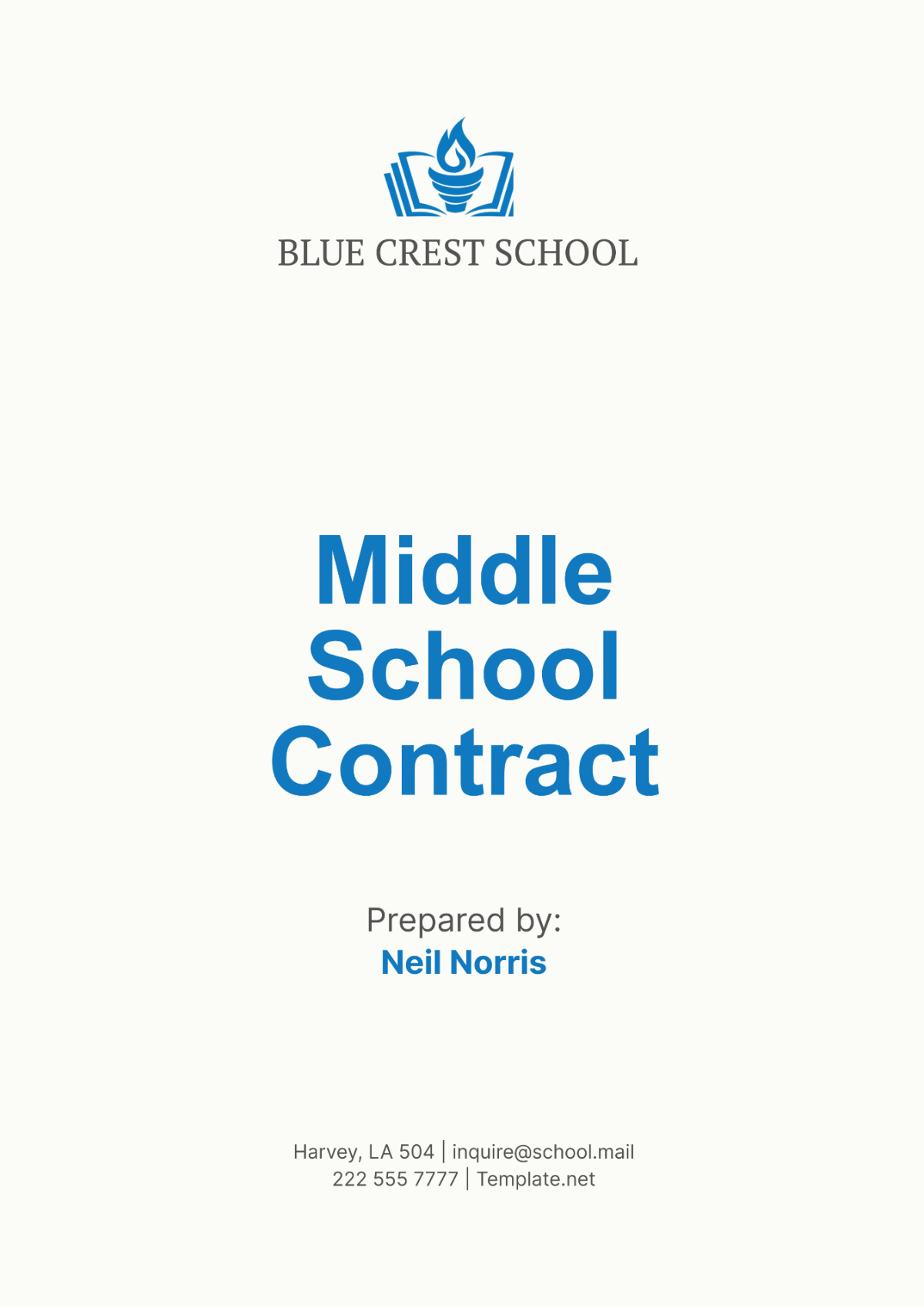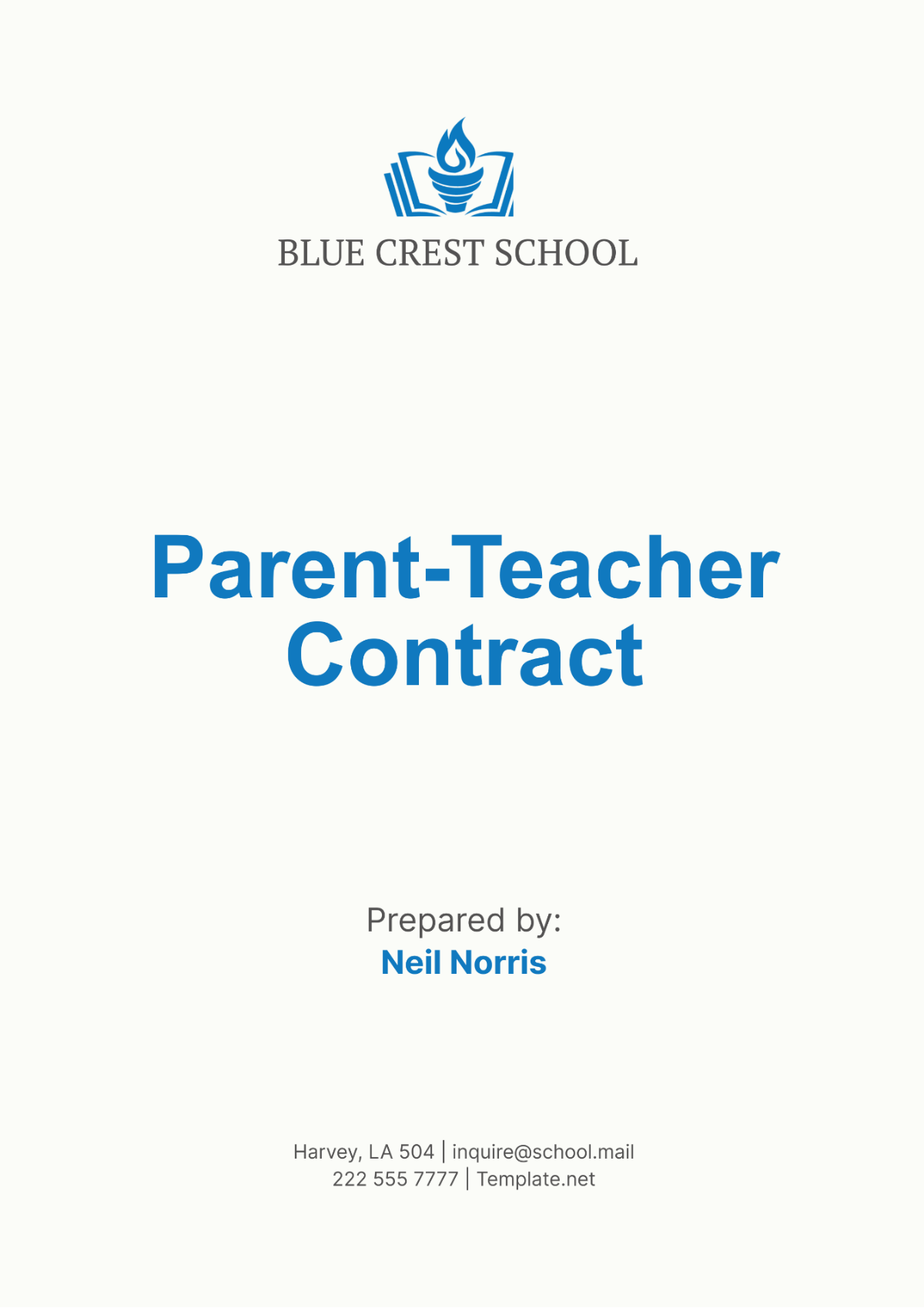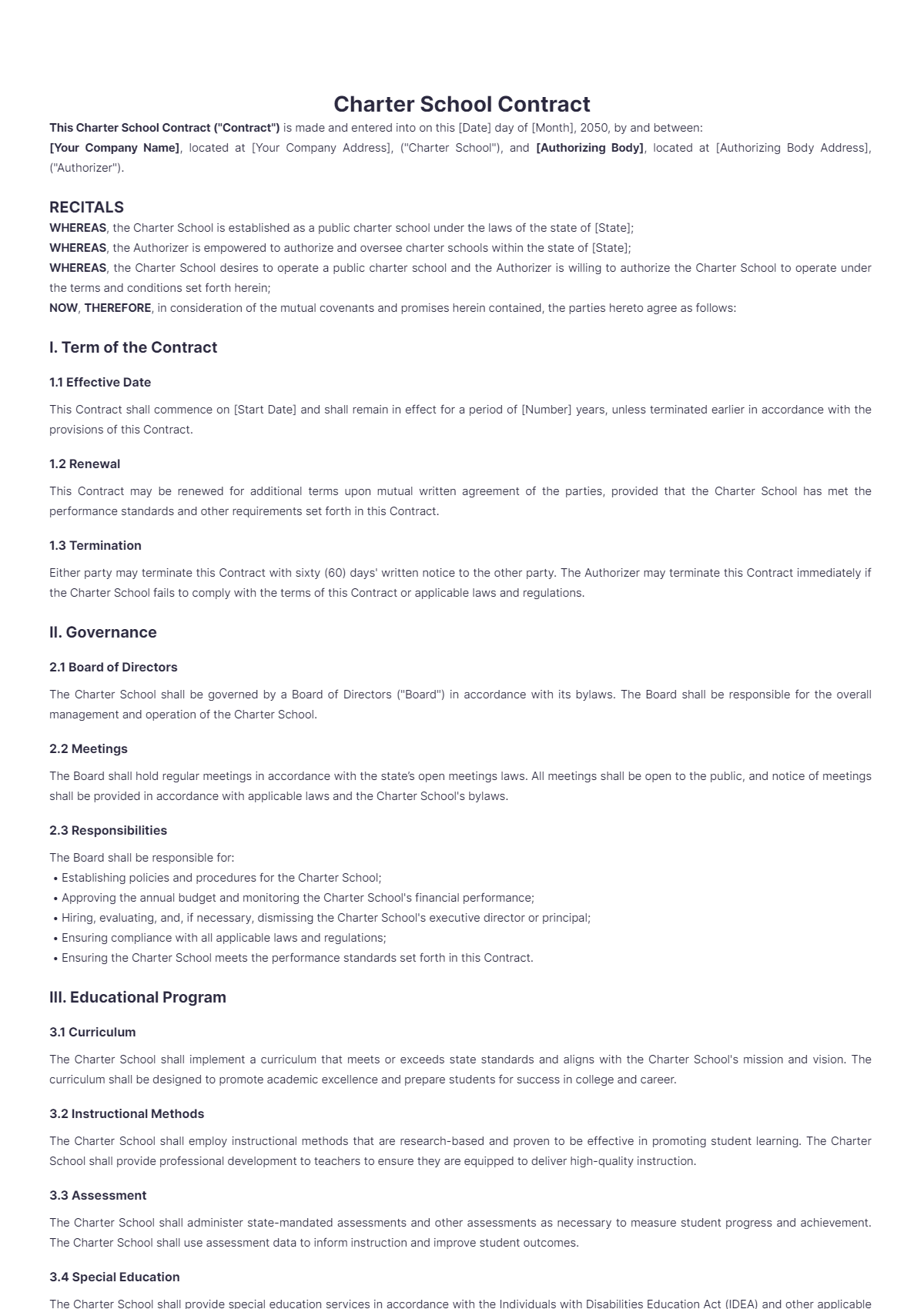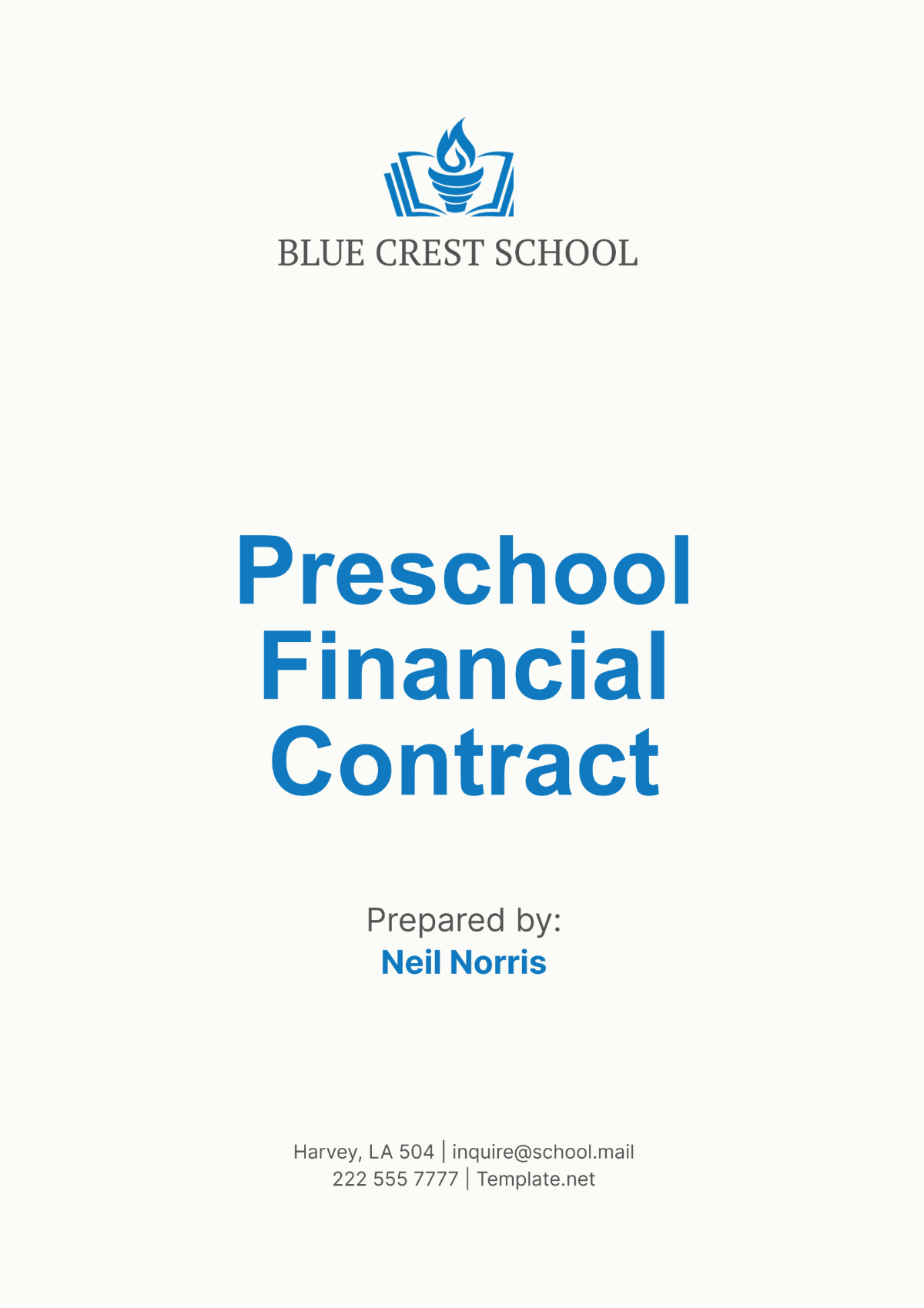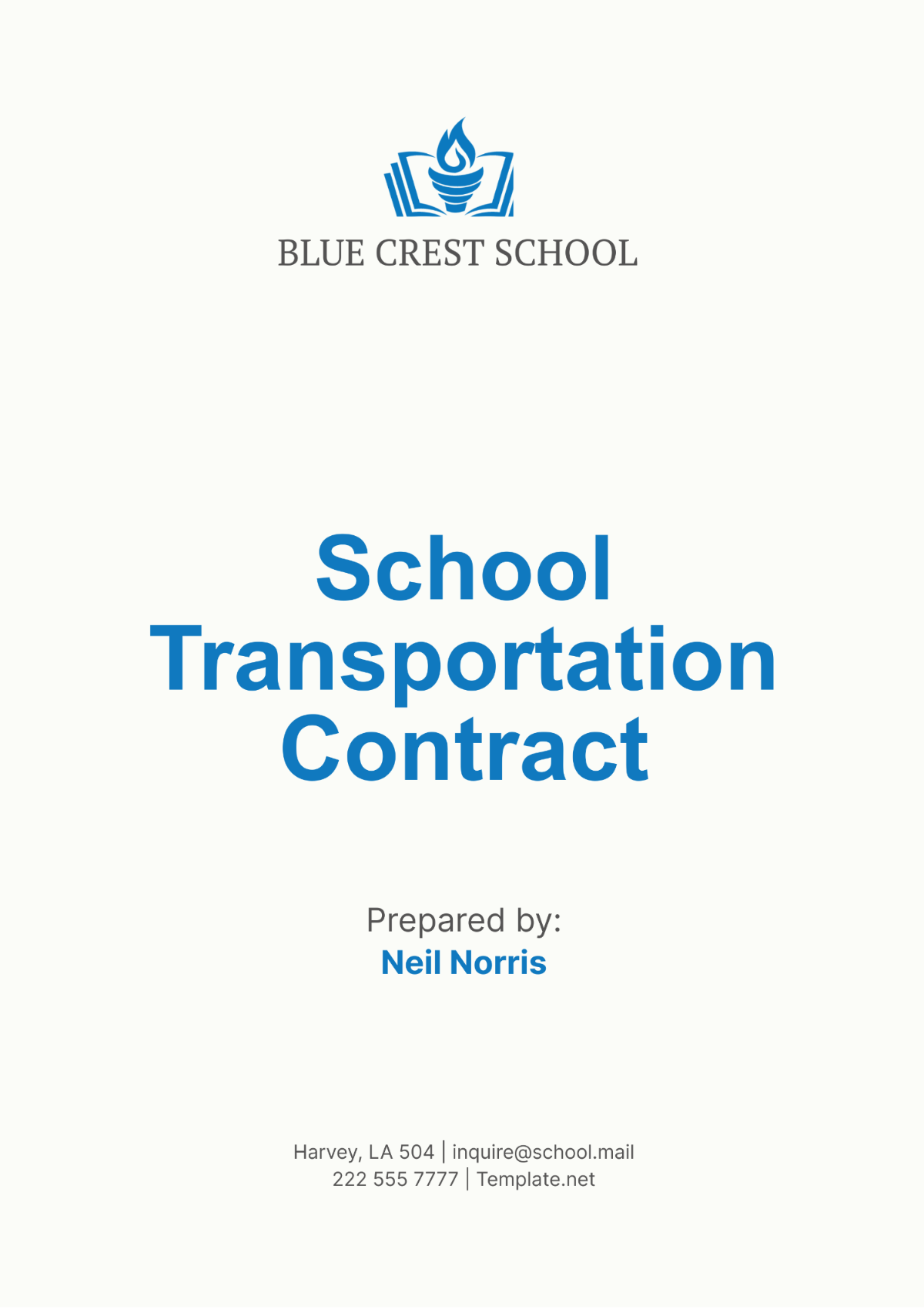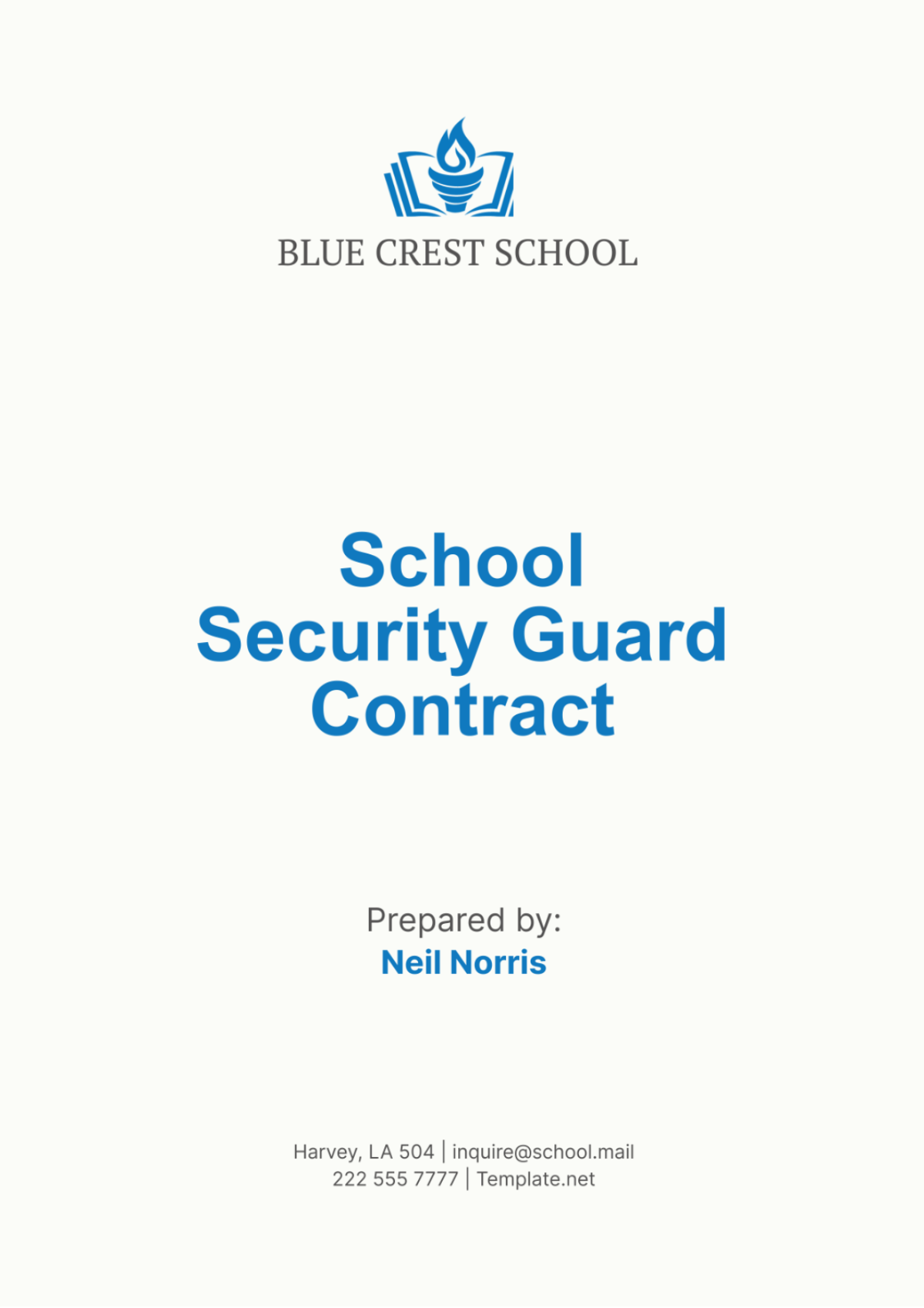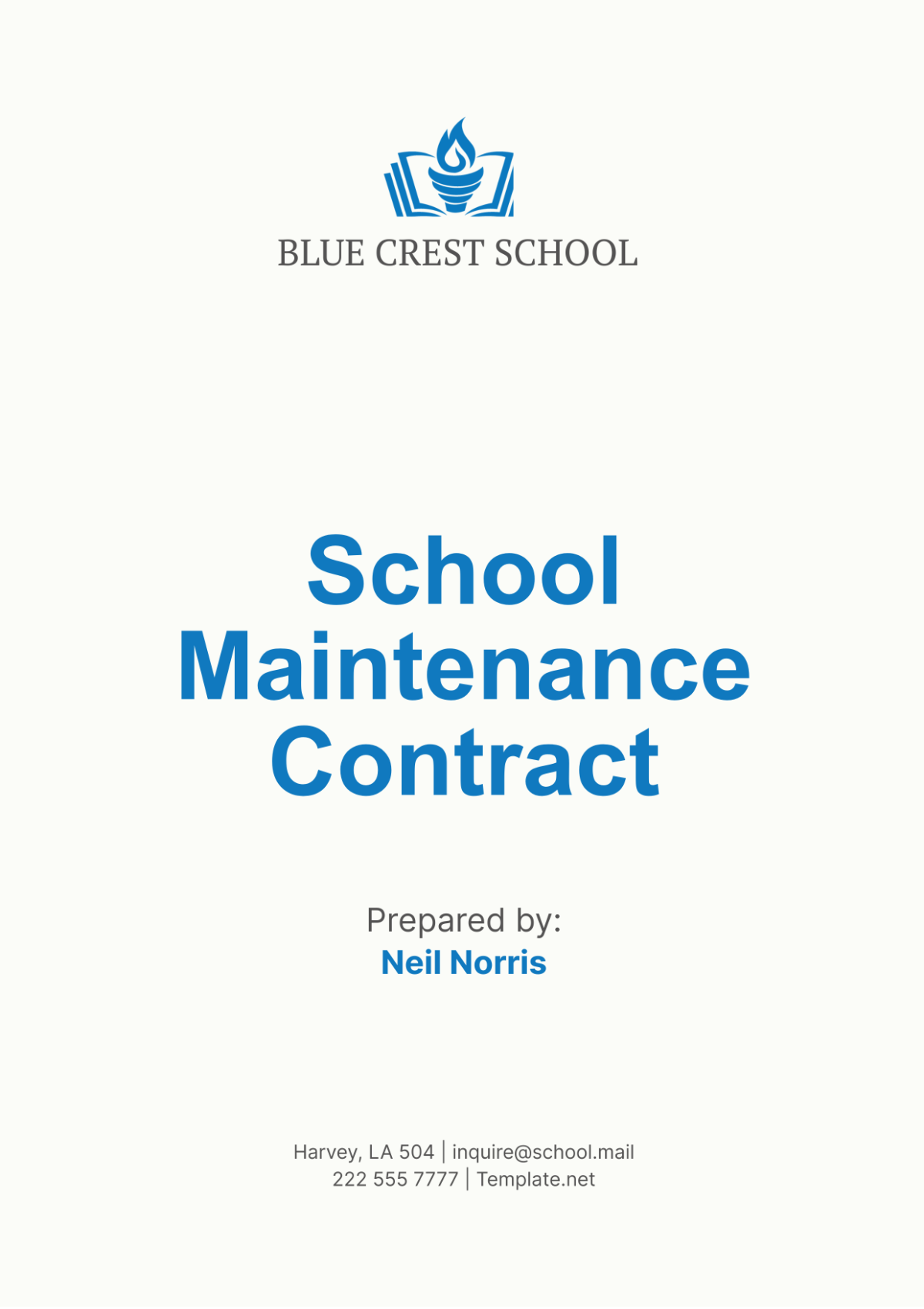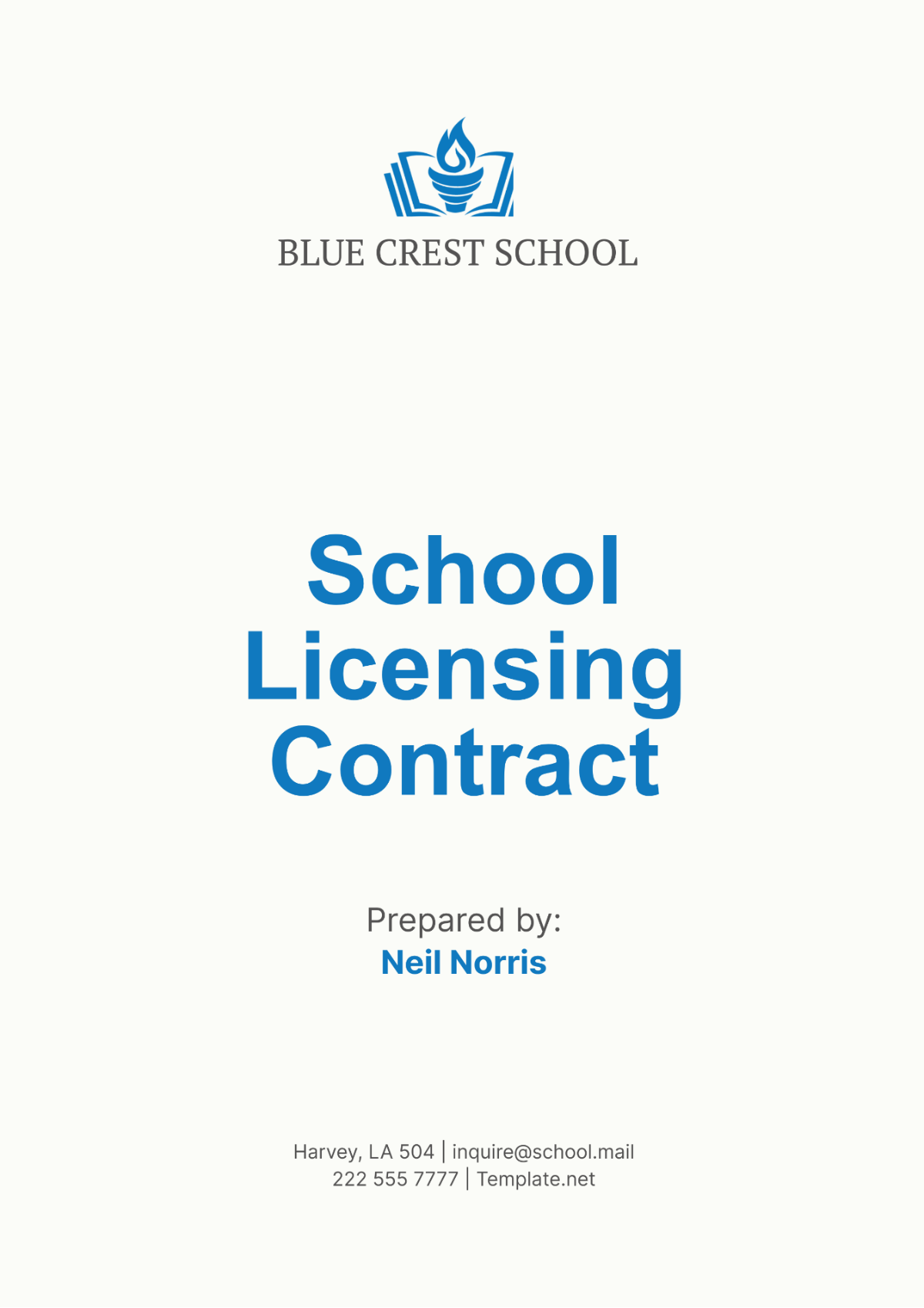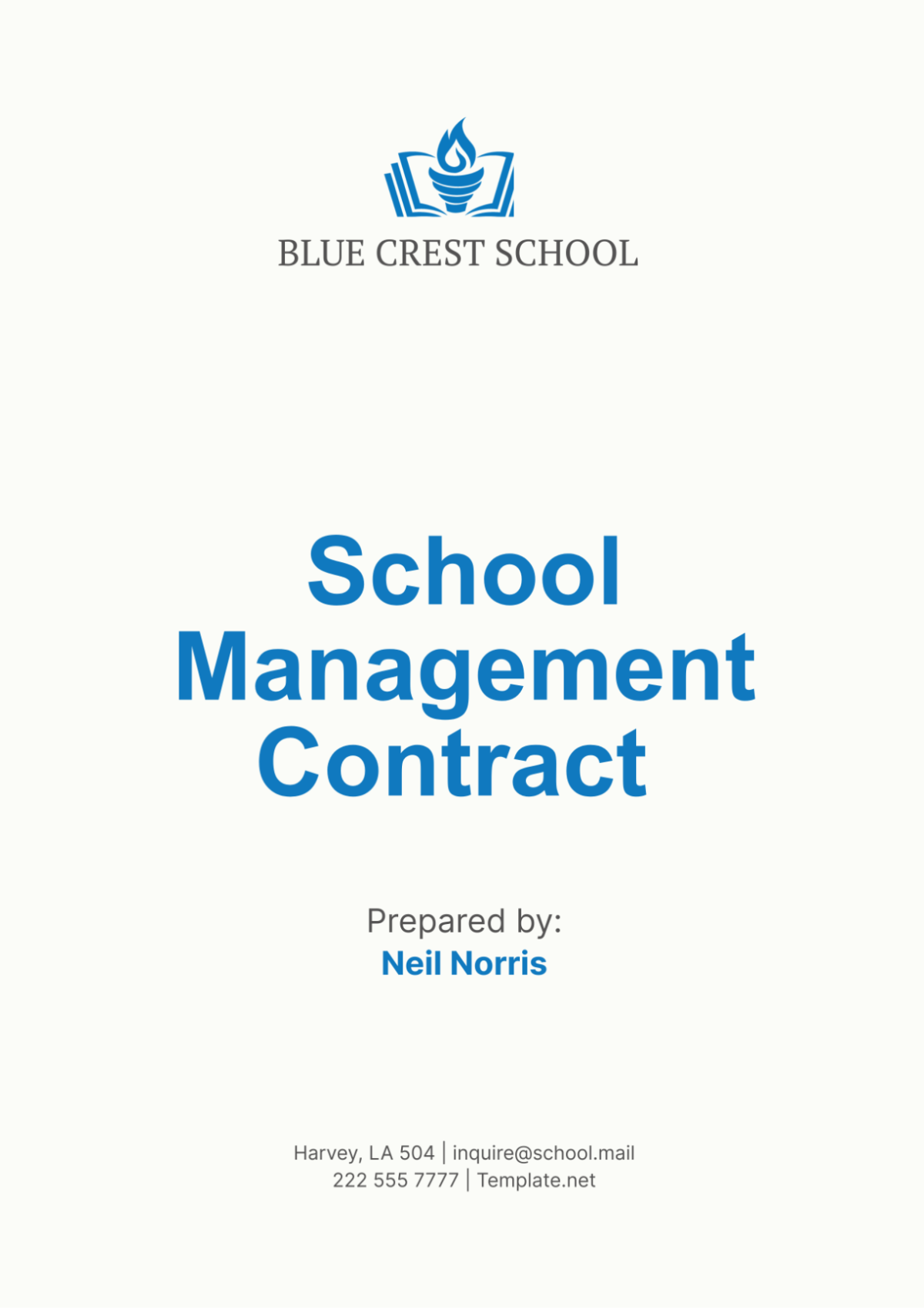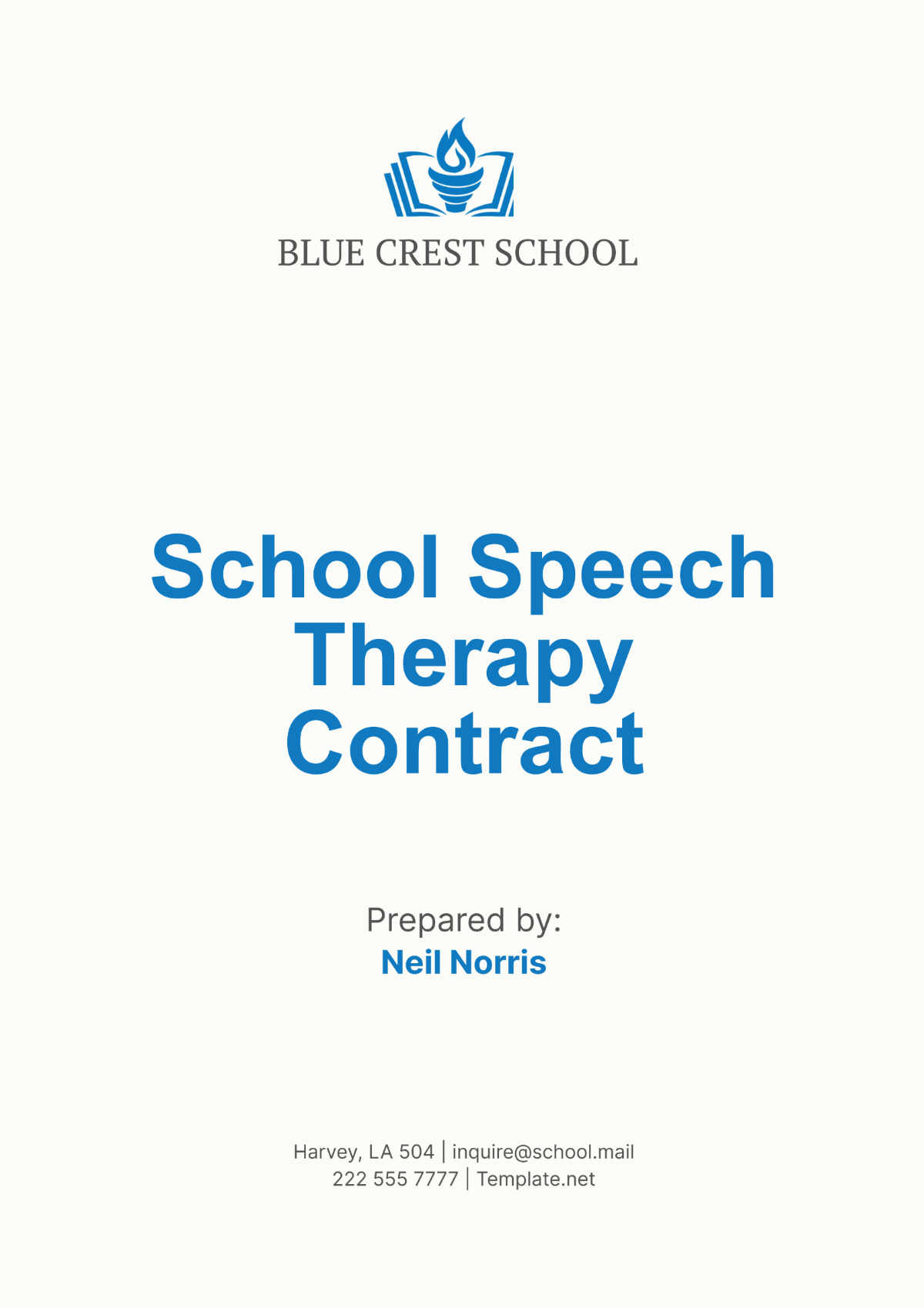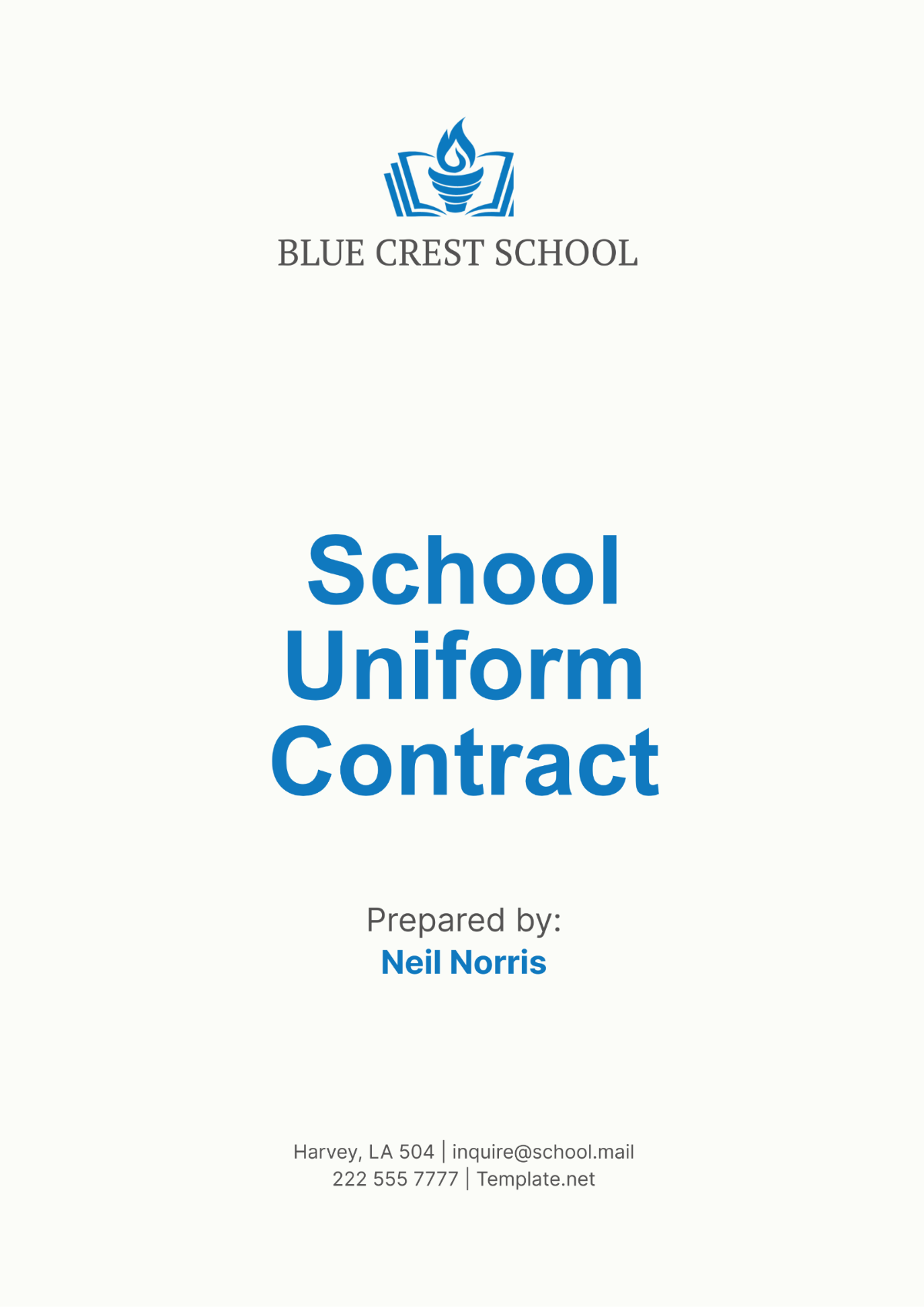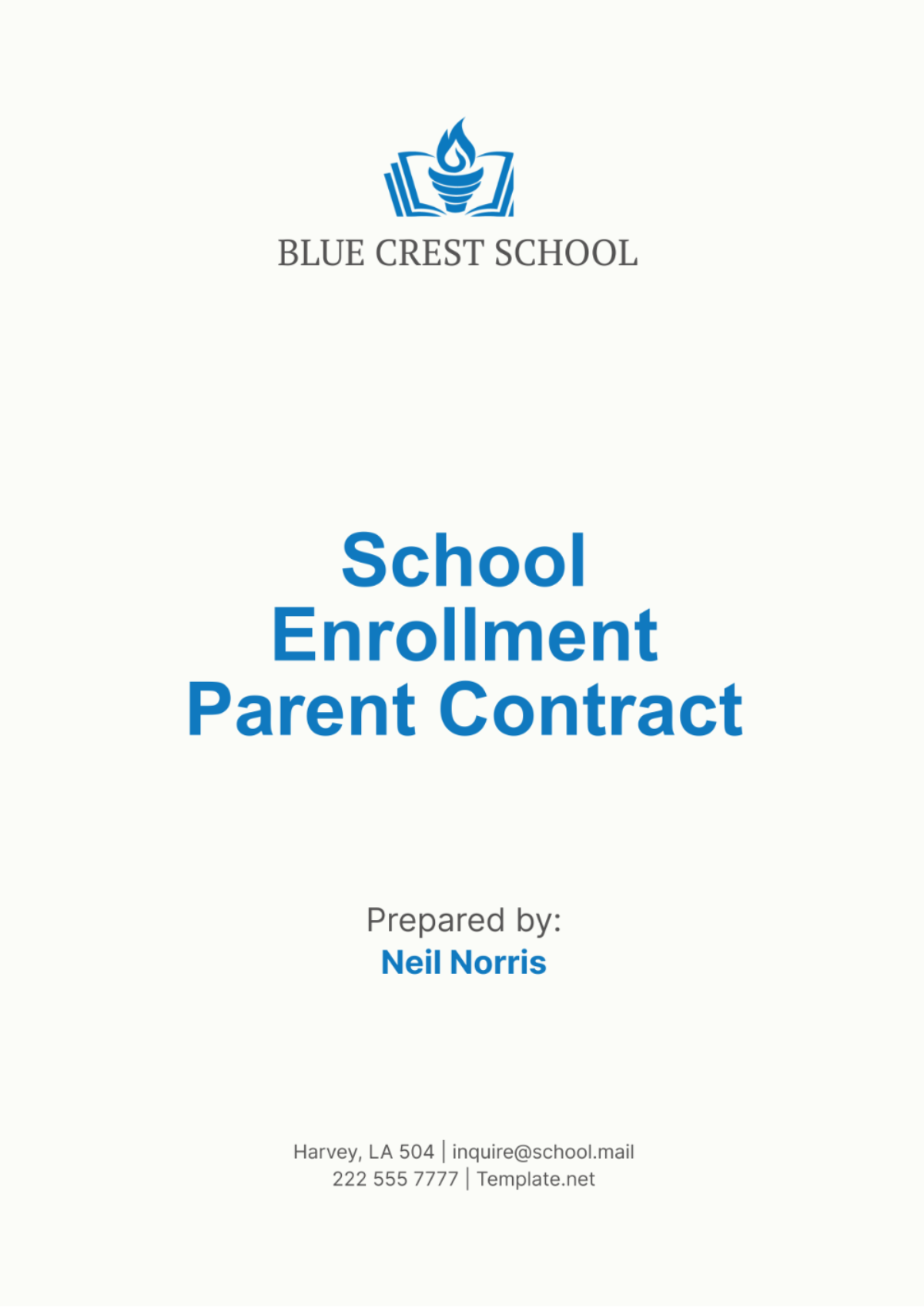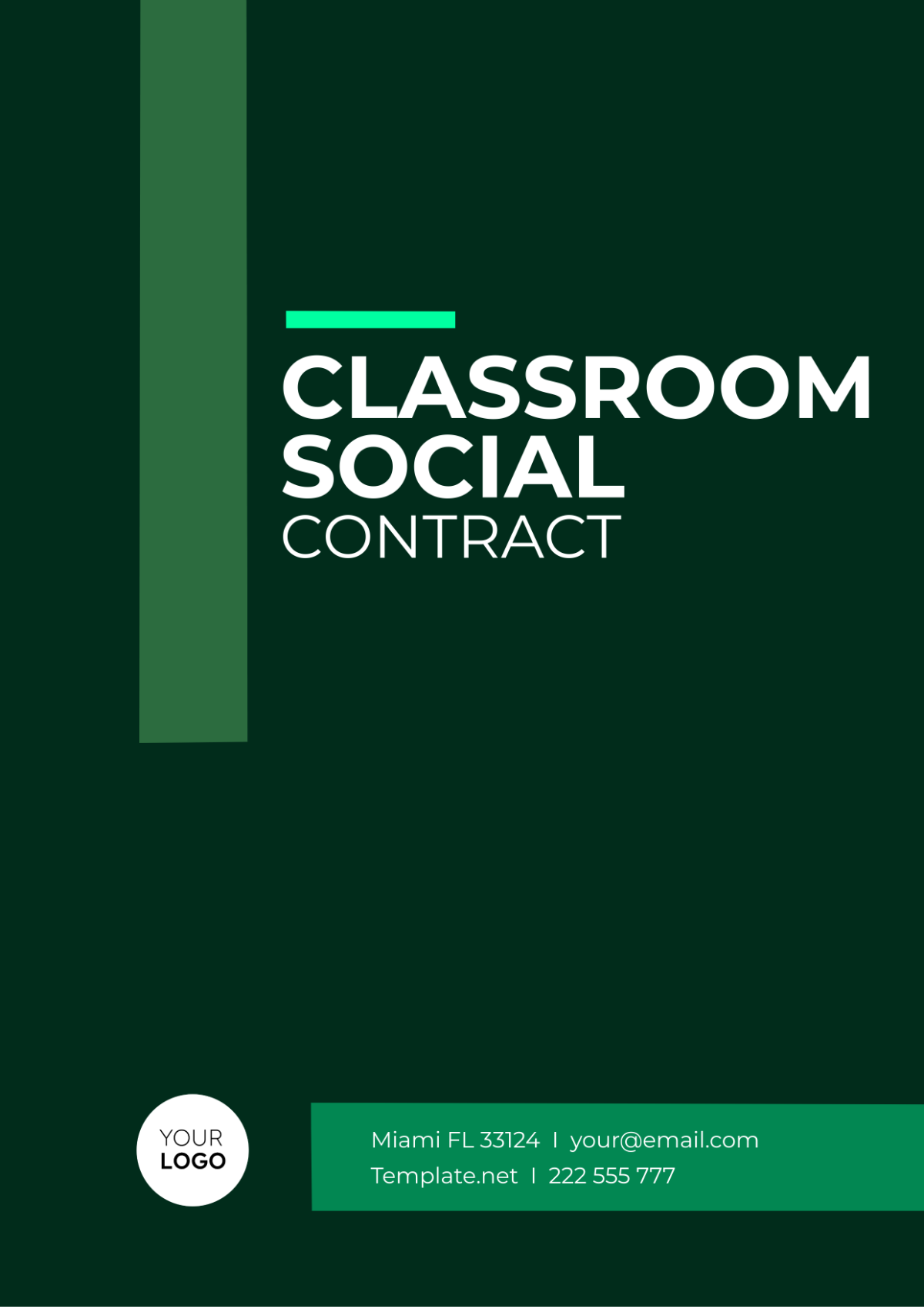School Music Teacher Contract
I. The Parties
This School Music Teacher Contract ("Contract") is made and entered into on [Month Day, Year] ("Effective Date") by and between [Your Company Name] hereinafter referred to as the ("School") with a primary place of business at [Your Company Address] and [Music Teacher's Name] hereinafter referred to as the ("Music Teacher") residing at [Music Teacher's Address] collectively referred to as the ("Parties").
WHEREAS, the School desires to employ or engage the Music Teacher to teach music within its curriculum and instructional framework;
WHEREAS, the Music Teacher has the qualifications, skills, and experience necessary to provide such instruction;
WHEREAS, the Parties wish to set forth their respective rights and obligations in this Contract;
NOW THEREFORE, in consideration of the mutual promises contained herein, the Parties agree as follows:
II. Employment and Duties
A. Position
Teaching Responsibilities: The Music Teacher is employed to teach music to students as specified in the curriculum provided by the School. This includes preparing lesson plans, delivering instruction, and assessing student performance.
Adherence to Policies: The Music Teacher shall perform their duties to the best of their ability, adhering to the policies and guidelines set by the School. This includes maintaining a safe and conducive learning environment.
Additional Responsibilities: Any additional responsibilities will be communicated by the School and must be reasonably related to the Music Teacher’s primary duties. These may include attending school events and participating in committees.
Mandatory Meetings: The Music Teacher will be required to attend staff meetings, training sessions, and parent-teacher conferences as scheduled by the School. Attendance at these meetings is critical for professional development and effective communication.
Extracurricular Activities: The Music Teacher may also be required to participate in extracurricular activities such as school concerts and recitals. Participation in these activities is essential for student engagement and program success.
B. Working Hours
Standard Working Hours: The Music Teacher’s working hours will be from [8:00 AM] to [4:00 PM], [Monday] through [Friday], excluding public holidays and school vacations. Consistent attendance during these hours is expected.
Modification of Hours: The School reserves the right to modify working hours subject to reasonable notice and in consultation with the Music Teacher. Flexibility is necessary to accommodate school needs.
Extracurricular Compensation: Additional hours may be required for extracurricular activities, which will be compensated as per the School’s policy on overtime. Compensation for these activities will be discussed and agreed upon in advance.
Breaks and Lunch: The Music Teacher is entitled to a lunch break of [1] hour each day and [2] 15-minute breaks, [1] in the morning and [1] in the afternoon. These breaks are essential for maintaining well-being and productivity.
C. Professional Development
Ongoing Training: The Music Teacher shall engage in ongoing professional development to stay current with educational practices and music pedagogy. This may include attending workshops, conferences, and additional coursework.
School-Sponsored Training: The School will provide opportunities for professional development and may sponsor relevant training programs. Participation in these programs is encouraged to enhance teaching effectiveness.
Performance Improvement: Based on performance evaluations, the Music Teacher may be required to undertake specific professional development activities. These activities aim to address identified areas for improvement.
III. Compensation and Benefits
A. Salary
Monthly Salary: The School agrees to pay the Music Teacher a salary of [$4,500] per month. This salary reflects the Music Teacher’s qualifications and responsibilities.
Payment Schedule: Payment will be made on the [last] working day of each month by direct deposit unless another arrangement is mutually agreed upon. Timely payment ensures financial stability.
Salary Breakdown: The School shall provide the Music Teacher with a breakdown of the monthly salary, including any deductions for taxes, benefits, and other contributions. Transparency in salary breakdown is essential for clarity.
Annual Reviews: The Music Teacher will be eligible for salary reviews yearly, with any changes subject to approval by the School's administration. Performance and market conditions will be considered during reviews.
Extracurricular Compensation: Any additional compensation for extracurricular activities will be specified in writing and agreed upon by both Parties in advance. This ensures fair compensation for extra duties.
B. Benefits
Health Insurance: The Music Teacher will be entitled to health, dental, and vision insurance benefits as provided to other full-time staff members. Comprehensive benefits support the well-being of the Music Teacher.
Paid Time Off: The School will provide paid vacation time, sick leave, and personal days in accordance with the School’s policy. Adequate time off ensures work-life balance.
Retirement Plan: The Music Teacher is eligible to participate in the School's retirement plan, with contributions starting after a probationary period of six months. Planning for retirement is a key component of long-term financial security.
Professional Development Stipends: Other fringe benefits, such as professional development stipends, are subject to availability and approval by the School. These stipends support continued professional growth.
C. Additional Perks
Tuition Reimbursement: The School may offer tuition reimbursement for courses related to the Music Teacher’s field of expertise. This encourages further education and specialization.
Wellness Programs: The School may provide access to wellness programs, including fitness memberships and mental health resources. These programs promote overall health and well-being.
Travel Allowances: If the Music Teacher is required to travel for work-related activities, the School will cover reasonable travel expenses. This ensures that travel costs do not burden the Music Teacher.
IV. Performance and Evaluation
A. Performance Standards
Educational Standards: The Music Teacher is expected to meet and uphold the educational standards and objectives as outlined by the School. High standards are necessary for student success.
Regular Evaluations: Regular performance evaluations will be conducted to assess the Music Teacher’s effectiveness and adherence to School policies. These evaluations provide feedback for continuous improvement.
Implementation of Feedback: The Music Teacher shall implement feedback and recommendations from evaluations to improve their teaching practices. Constructive feedback enhances teaching quality.
Student Outcomes: The Music Teacher's performance will be partially measured by student outcomes, including progress and achievement in music. Effective teaching should result in positive student outcomes.
Professional Growth: The Music Teacher is encouraged to seek opportunities for professional growth and development. Continuous learning is essential for staying current in the field.
B. Evaluation Process
Biannual Evaluations: Formal evaluations will be conducted biannually by the School Principal or an appointed evaluator. Regular evaluations ensure ongoing feedback and support.
Classroom Observations: The evaluation process will include classroom observations, review of lesson plans, and student feedback. Observations provide a comprehensive view of teaching effectiveness.
Written Reports: The Music Teacher will receive a written evaluation report and have an opportunity to discuss the findings with the evaluator. Open discussions help in understanding and addressing areas for improvement.
Peer Reviews: Peer reviews may also be part of the evaluation process, providing additional perspectives on teaching practices. Peer feedback can offer valuable insights.
Self-Assessment: The Music Teacher will be encouraged to engage in self-assessment to reflect on their performance and set goals for improvement. Self-assessment fosters self-awareness and professional growth.
C. Improvement Plans
Action Plans: Based on evaluations, the Music Teacher and School administration shall develop action plans for improvement. These plans will include specific goals and timelines.
Resources for Improvement: The School will provide necessary resources and support to help the Music Teacher achieve the goals outlined in the improvement plan. Adequate support is crucial for successful implementation.
Progress Monitoring: Regular monitoring of the improvement plan's progress will be conducted to ensure goals are being met. Ongoing assessment helps in making necessary adjustments.
Professional Development Opportunities: The Music Teacher will be encouraged to pursue relevant professional development opportunities as part of the improvement plan. Continuous learning is essential for growth.
Feedback Loop: A feedback loop will be established to ensure that the Music Teacher receives ongoing support and guidance throughout the improvement process. Effective feedback mechanisms enhance improvement efforts.
V. Term and Termination
A. Term
Initial Term: This Contract will commence on the Effective Date and will continue for a period of [1] academic year. A defined term provides clarity and stability.
Renewal Process: Renewal of the Contract for subsequent terms shall be based on performance evaluations and mutual agreement. Both Parties will discuss renewal terms well in advance.
Notice of Intent: The Music Teacher must provide written notice of intent to renew or not renew at least [30] days before the end of the current term. Timely notice allows for proper planning.
Automatic Renewal: If neither Party provides notice of termination, the Contract may automatically renew for the same term. Automatic renewal ensures continuity.
Review Period: A review period will be conducted prior to the end of the term to evaluate performance and discuss potential renewal. Thorough review ensures informed decisions.
B. Termination
Termination for Cause: The School may terminate this Contract for cause, including but not limited to misconduct, incompetence, or breach of contract, with immediate effect. Clear grounds for termination ensure fairness.
Voluntary Termination: The Music Teacher may terminate this Contract by providing [30] days’ written notice to the School. Advance notice allows for smooth transitions.
Property Return: Upon termination, the Music Teacher shall return all School property and settle any outstanding obligations. Proper return of property ensures School resources are protected.
Prorated Salary: Any remaining salary due to the Music Teacher will be paid on a prorated basis through the date of termination. Fair compensation is ensured even upon early termination.
Exit Interview: An exit interview may be conducted to gather feedback and insights from the departing Music Teacher. This feedback can inform future improvements.
Severance Package: Depending on the circumstances of the termination, the School may offer a severance package to the Music Teacher. Fair severance arrangements support smooth transitions.
VI. Confidentiality
A. Student Records
Confidentiality Commitment: The Music Teacher shall maintain the confidentiality of all student records and personal information in accordance with School policy and applicable laws. Protecting student privacy is paramount.
Prohibited Disclosure: Disclosure of student information to unauthorized individuals or entities is strictly prohibited unless required by law. Unauthorized disclosure can result in severe consequences.
Reporting Breaches: The Music Teacher must report any breaches of confidentiality to the School Principal immediately. Prompt reporting allows for swift corrective actions.
Secure Handling: The Music Teacher shall ensure that student records are handled securely and stored in accordance with School guidelines. Secure handling prevents data breaches.
Access Control: Only authorized personnel should have access to student records, and such access should be strictly controlled. Access control measures protect sensitive information.
B. School Information
Confidentiality of School Information: The Music Teacher shall keep all proprietary and confidential information of the School confidential during and after the term of this Contract. Confidentiality obligations extend beyond employment.
Examples of Confidential Information: Confidential information includes, but is not limited to, business practices, educational materials, and staff information. Protecting this information safeguards the School's interests.
Unauthorized Disclosure Consequences: Unauthorized use or disclosure of such confidential information may result in disciplinary action, including termination. Strict enforcement ensures compliance.
Non-Disclosure Agreement: The Music Teacher may be required to sign a non-disclosure agreement as part of this Contract. Formal agreements reinforce confidentiality commitments.
C. Legal Obligations
Compliance with Laws: The Music Teacher must comply with all relevant laws and regulations regarding confidentiality and data protection. Legal compliance is mandatory.
Mandatory Reporting: Certain information may need to be disclosed to authorities under mandatory reporting laws. The Music Teacher must understand and adhere to these legal requirements.
Training on Confidentiality: The School will provide training on confidentiality and data protection policies to ensure the Music Teacher is fully informed. Regular training updates are essential.
VII. Policies and Procedures
A. Compliance
Adherence to Policies: The Music Teacher agrees to comply with all School policies, procedures, and regulations as outlined in the School’s handbook and policy documents. Consistent adherence is expected.
Disciplinary Actions: Failure to adhere to School policies may result in disciplinary action, including but not limited to suspension or termination. Clear consequences ensure accountability.
Policy Changes: Changes to policies will be communicated to the Music Teacher in writing, and compliance is expected upon receipt of such notice. Timely communication ensures understanding.
Mandatory Training: The Music Teacher shall participate in mandatory training programs related to compliance, health and safety, and other relevant topics. Training ensures understanding and compliance.
Regular Updates: Policies and procedures may be updated regularly, and the Music Teacher is expected to stay informed of any changes. Staying updated ensures compliance.
B. Professional Conduct
Professional Behavior: The Music Teacher must maintain a professional demeanor and courteous behavior towards students, staff, and parents at all times. Professionalism is critical for a positive learning environment.
Zero Tolerance for Misconduct: Instances of unprofessional conduct, harassment, or discrimination will not be tolerated and may lead to termination. A zero-tolerance policy ensures a safe and respectful environment.
Dress Code: The Music Teacher is expected to dress appropriately for a school environment, following the dress code outlined in the School’s policy. Appropriate attire promotes professionalism.
Ethical Standards: The Music Teacher must adhere to ethical standards in all interactions and professional duties. Ethical conduct is fundamental to trust and integrity.
C. Safety and Health
Health and Safety Compliance: The Music Teacher must comply with all health and safety regulations to ensure a safe learning environment. Safety is a top priority.
Emergency Procedures: The Music Teacher should be familiar with and follow the School’s emergency procedures. Preparedness is essential for effective response.
Incident Reporting: Any incidents or accidents must be reported immediately to the School administration. Prompt reporting ensures timely intervention.
Wellness Programs: Participation in School wellness programs is encouraged to promote overall health and well-being. Wellness programs support a healthy work-life balance.
VIII. Dispute Resolution
A. Mediation and Arbitration
Initial Mediation: In the event of any dispute arising under this Contract, the Parties agree to first attempt resolution through informal mediation. Mediation aims for amicable solutions.
Binding Arbitration: If mediation fails, the dispute shall be submitted to binding arbitration under the rules of the [American Arbitration Association]. Arbitration provides a definitive resolution.
Arbitrator's Decision: The decision of the arbitrator shall be final and binding on both Parties, with any costs shared equally unless awarded otherwise. Finality ensures closure.
Arbitration Costs: Arbitration costs will be shared equally by both Parties unless the arbitrator decides otherwise. Fair cost-sharing promotes equitable resolutions.
B. Governing Law
Applicable Law: This Contract shall be governed by and construed in accordance with the laws of the State of [State Name], without regard to its conflict of laws principles. Consistent application of law ensures predictability.
Litigation Venue: Any litigation arising from this Contract shall be brought in the state or federal courts located in [State Name]. Proper venue ensures jurisdictional clarity.
Legal Counsel: Both Parties are encouraged to seek legal counsel to understand their rights and obligations under this Contract. Informed Parties make better decisions.
Contract Interpretation: Any ambiguities in this Contract will be interpreted in accordance with applicable laws and the intent of the Parties. Clear interpretation avoids disputes.
C. Conflict Resolution
Conflict Resolution Procedures: The School will provide conflict resolution procedures to address disputes internally before proceeding to mediation or arbitration. Internal resolution promotes harmony.
Communication Channels: Effective communication channels will be established to address and resolve conflicts promptly. Open communication is key to conflict resolution.
Documentation: All disputes and resolutions will be documented to ensure transparency and accountability. Proper documentation provides a record for reference.
IX. Amendments and Modifications
A. Written Amendments
Requirement for Writing: Any amendments or modifications to this Contract must be made in writing and signed by both Parties. Written amendments ensure clarity and enforceability.
No Oral Modifications: Oral modifications or explanations have no legal effect and cannot alter the terms of this Contract. Clear policies prevent misunderstandings.
Mutual Agreement: Any changes must be mutually agreed upon by both Parties to be valid. Mutual consent ensures fairness and agreement.
Documentation of Changes: All changes will be documented and filed appropriately to maintain accurate records. Proper documentation supports contract integrity.
B. Changes to Scope of Work
Documentation of Duties: Changes to the Music Teacher’s scope of work, including additional duties or responsibilities, must be documented in writing and agreed upon by both Parties. Clear documentation prevents disputes.
Scope Adjustments: Adjustments to the scope of work will be made in consideration of the Music Teacher's capacity and expertise. Fair adjustments ensure reasonable expectations.
Impact Assessment: Any changes will be assessed for their impact on the Music Teacher’s workload and compensation. Proper assessment ensures fair treatment.
Agreement on Changes: Both Parties must agree on any changes to duties or responsibilities to avoid misunderstandings. Clear agreements foster positive working relationships.
X. Miscellaneous
A. Entire Agreement
Comprehensive Agreement: This Contract constitutes the entire agreement between the Parties and supersedes all prior agreements or understandings, whether written or oral. Comprehensive coverage ensures all terms are included.
Binding Terms: Any representations or statements not included in this Contract are not binding on either Party. Only written terms are enforceable.
Review and Understanding: Both Parties have reviewed and understand the terms of this Contract. Informed consent ensures mutual understanding.
Future Amendments: Any future amendments will be made in accordance with the procedures outlined in this Contract. Consistent procedures ensure fairness.
B. Severability
Validity of Provisions: If any provision of this Contract is found to be invalid or unenforceable, the remaining provisions will continue in full force and effect. Validity of remaining terms ensures contract continuity.
Renegotiation of Terms: The Parties agree to renegotiate any invalid or unenforceable provision to reflect the original intent as closely as possible. Fair renegotiation ensures intent is preserved.
Legal Compliance: The Contract will be interpreted and enforced in compliance with applicable laws. Legal compliance ensures enforceability.
Severability Clause: A severability clause is included to ensure the Contract remains effective even if parts are invalidated. This clause supports contract integrity.
XI. Signatures
IN WITNESS WHEREOF, the Parties hereto have executed this Contract as of the day and year first above written.
School

[Authorized Representative Name]
[Your Company Name]
Date: [Month Day, Year]
Music Teacher

[Music Teacher's Name]
Date: [Month Day, Year]

